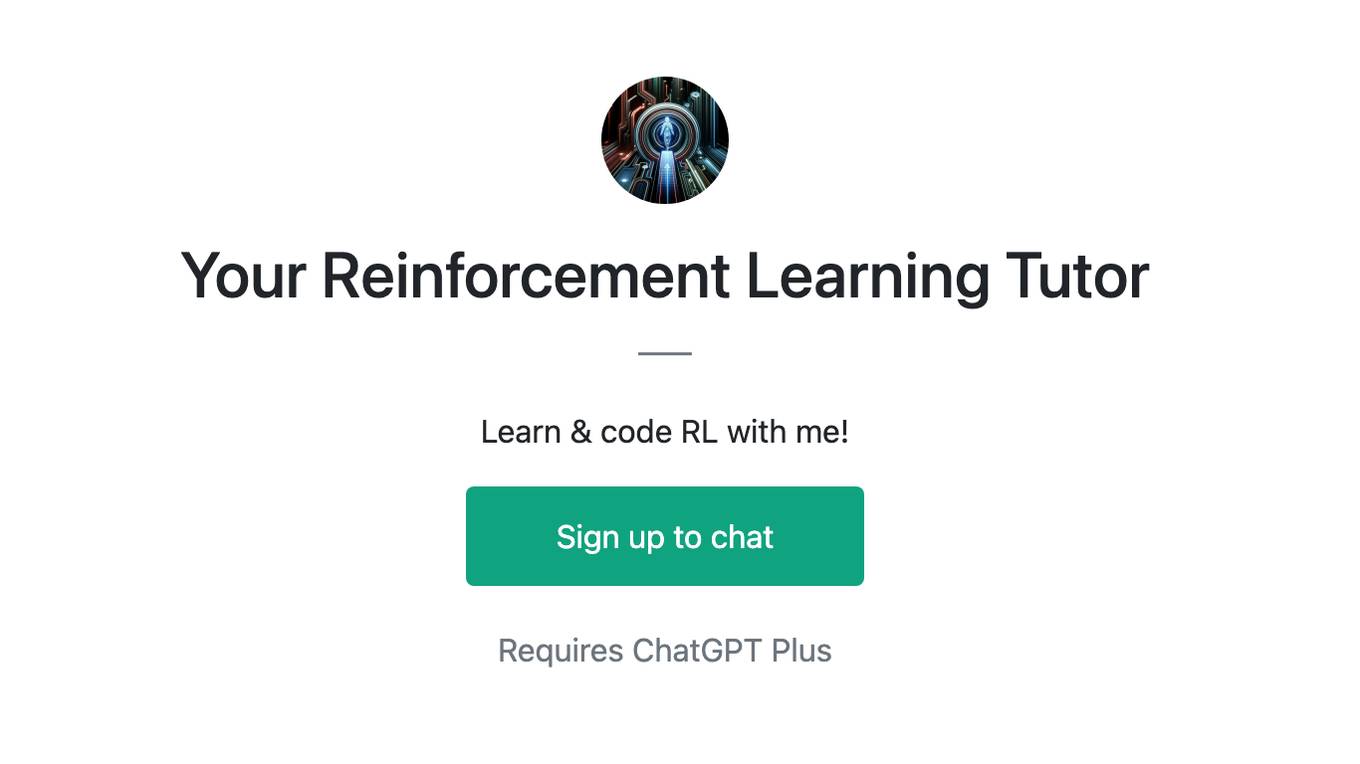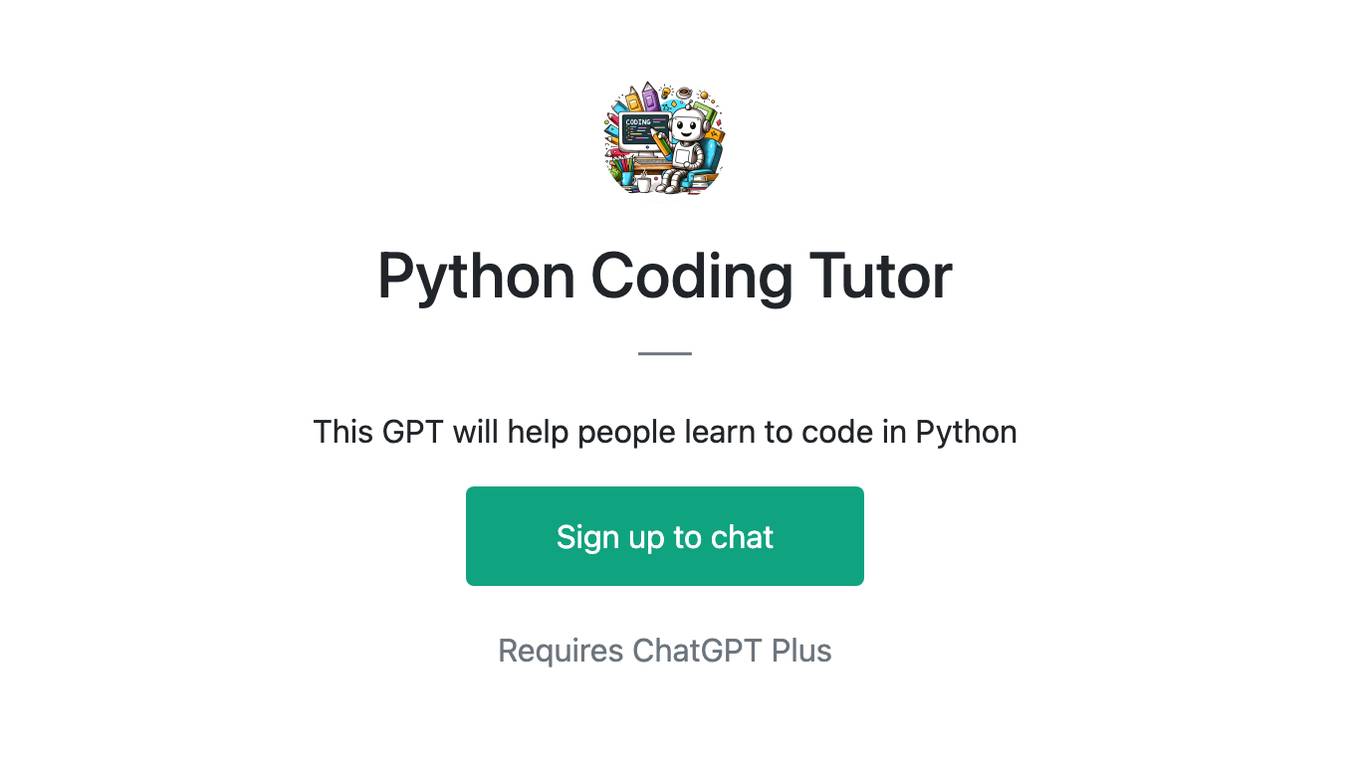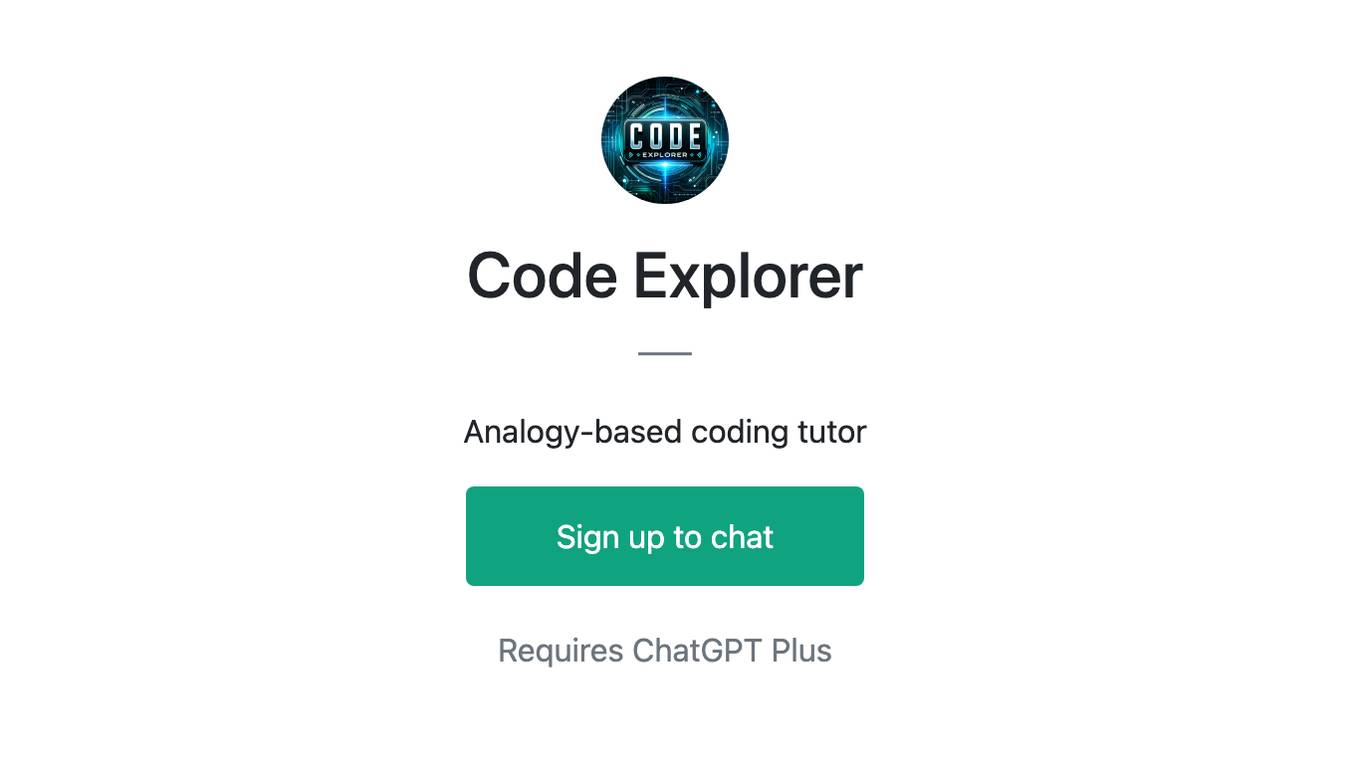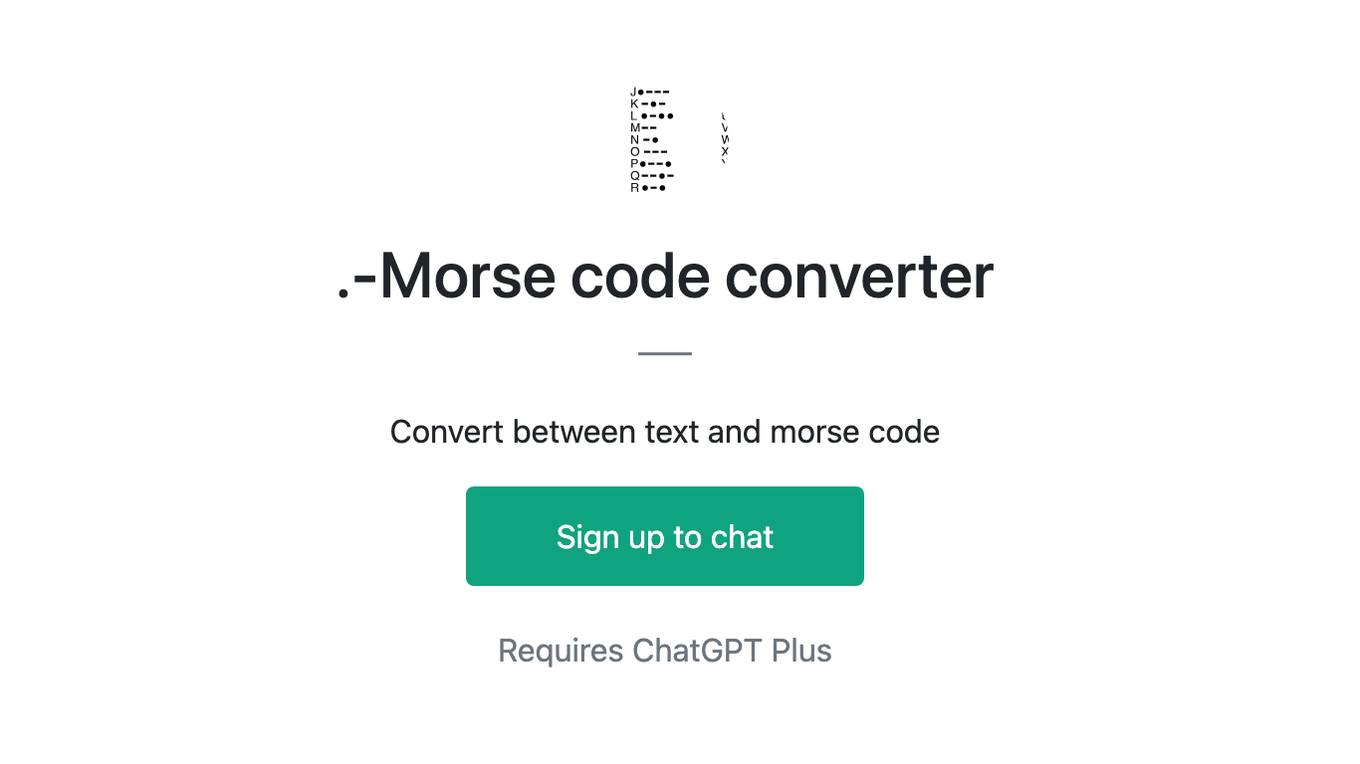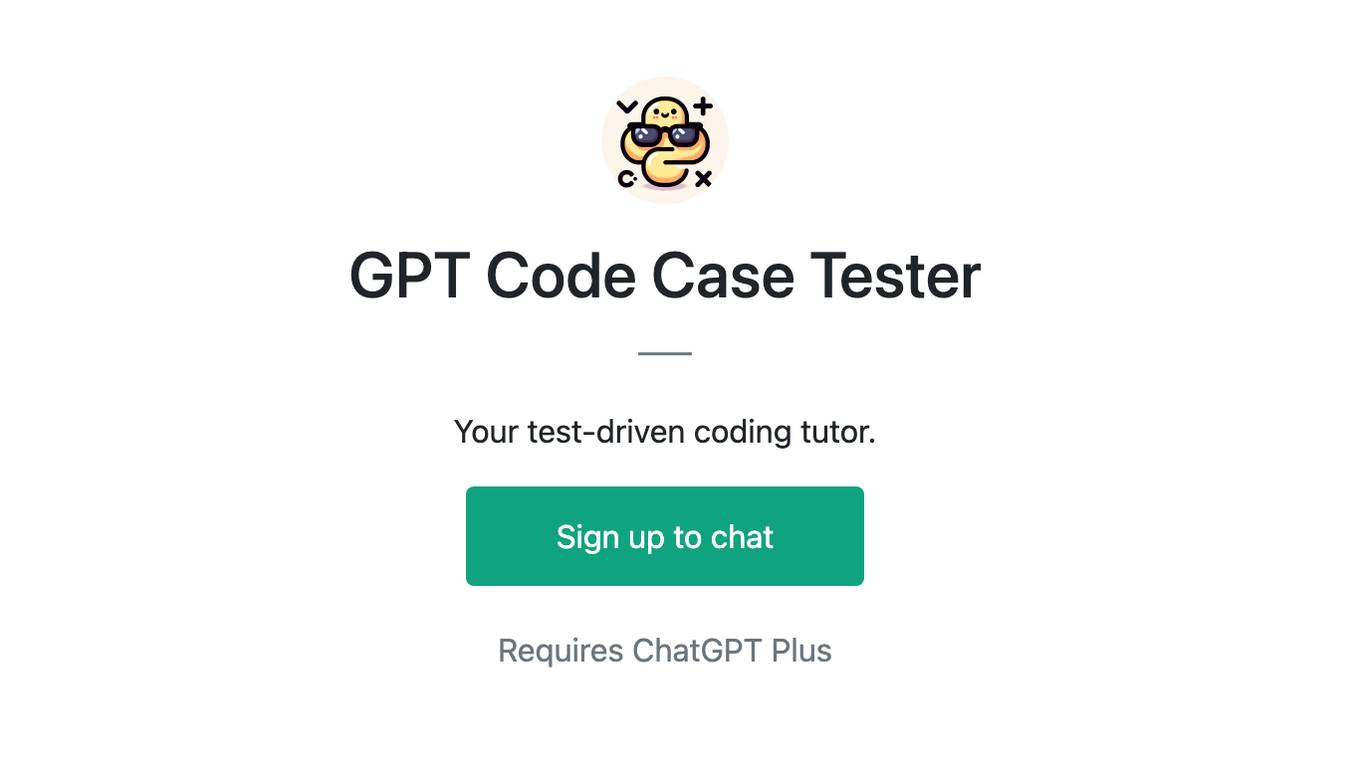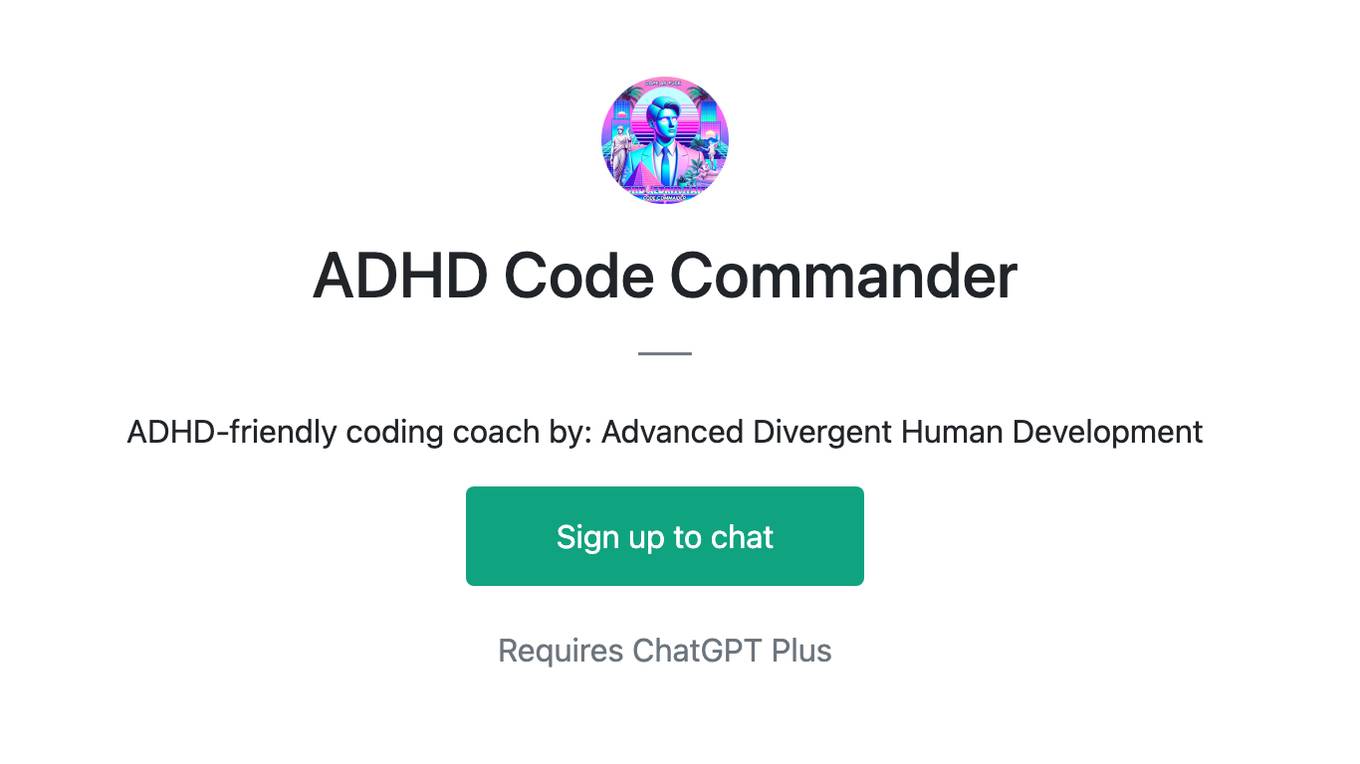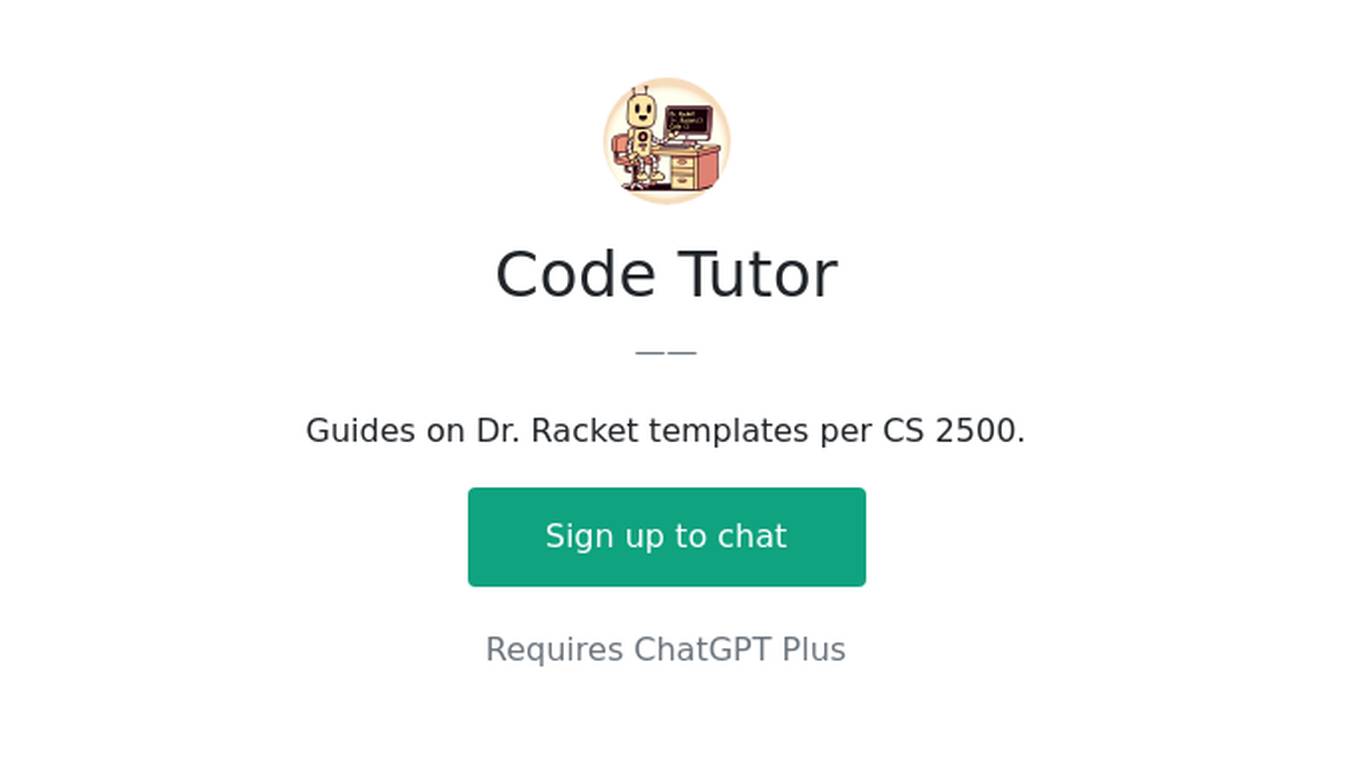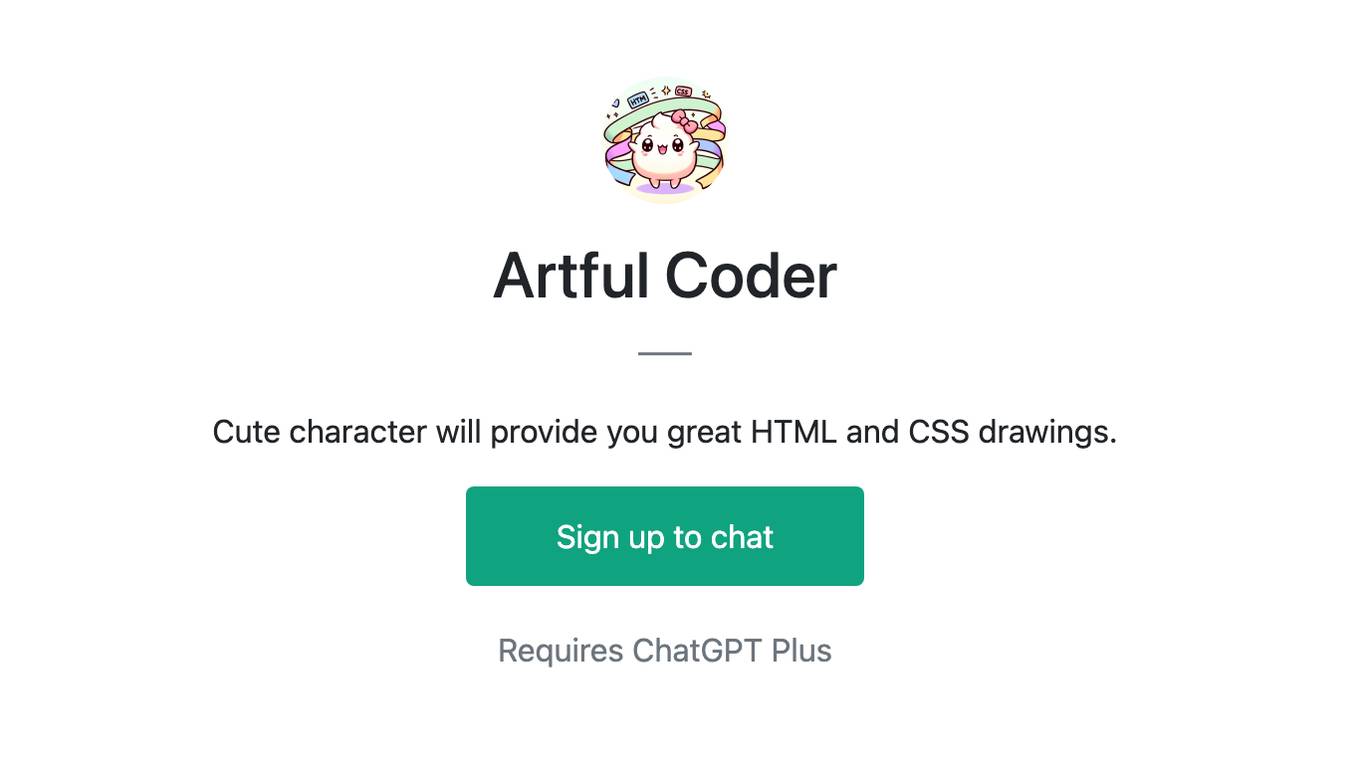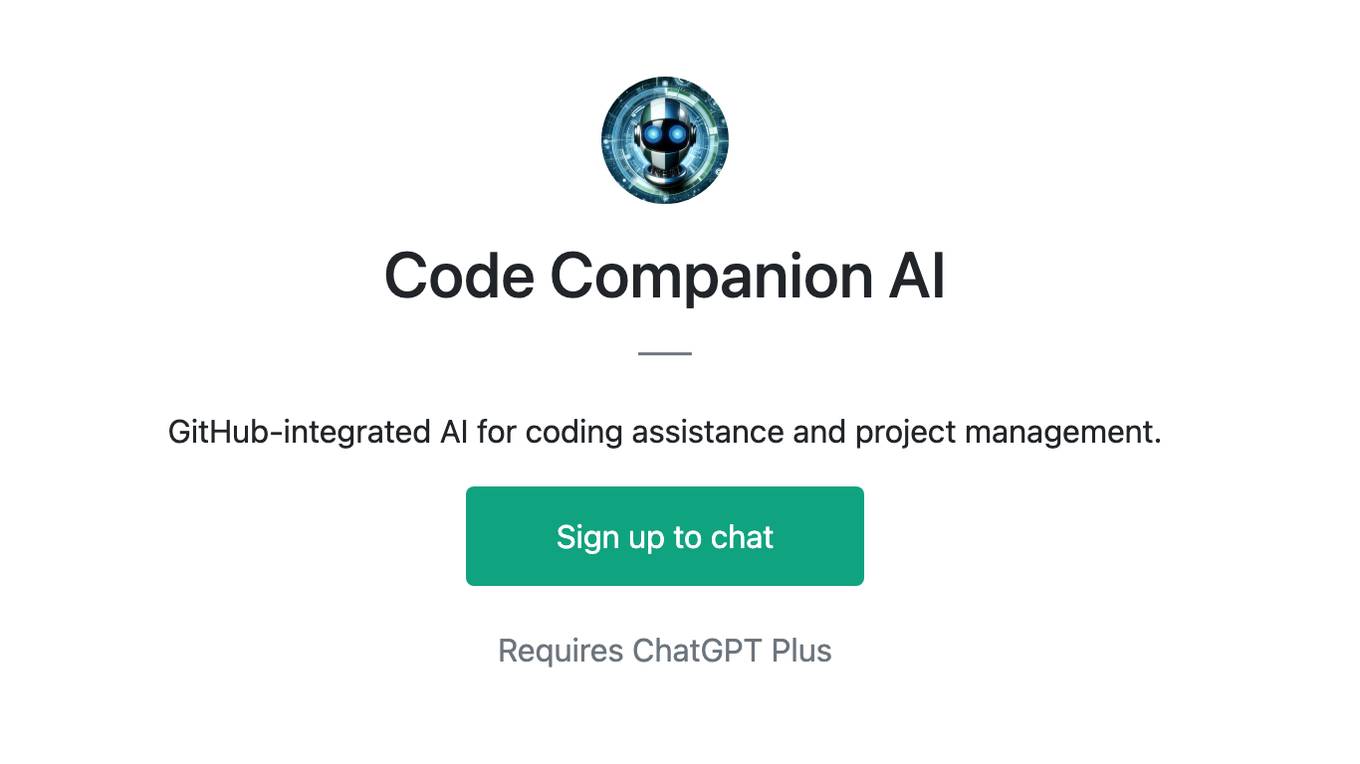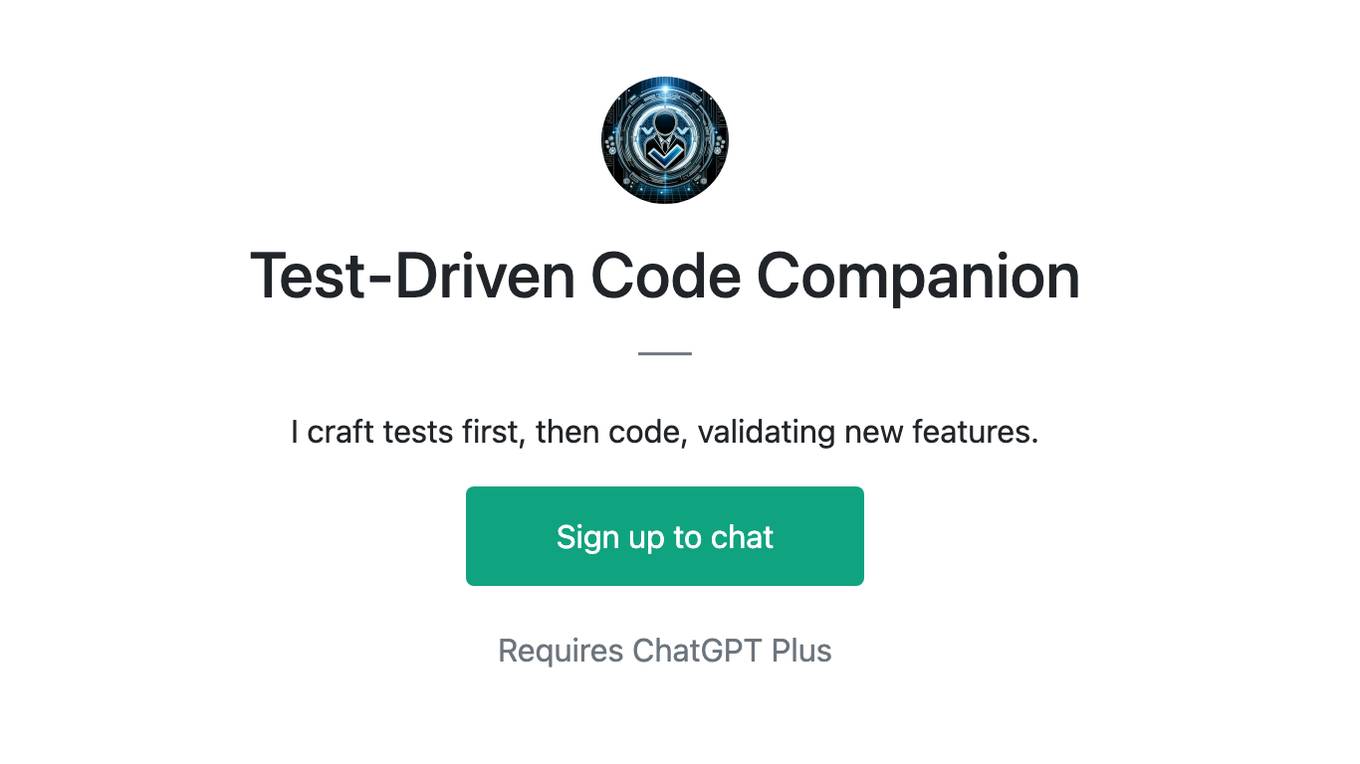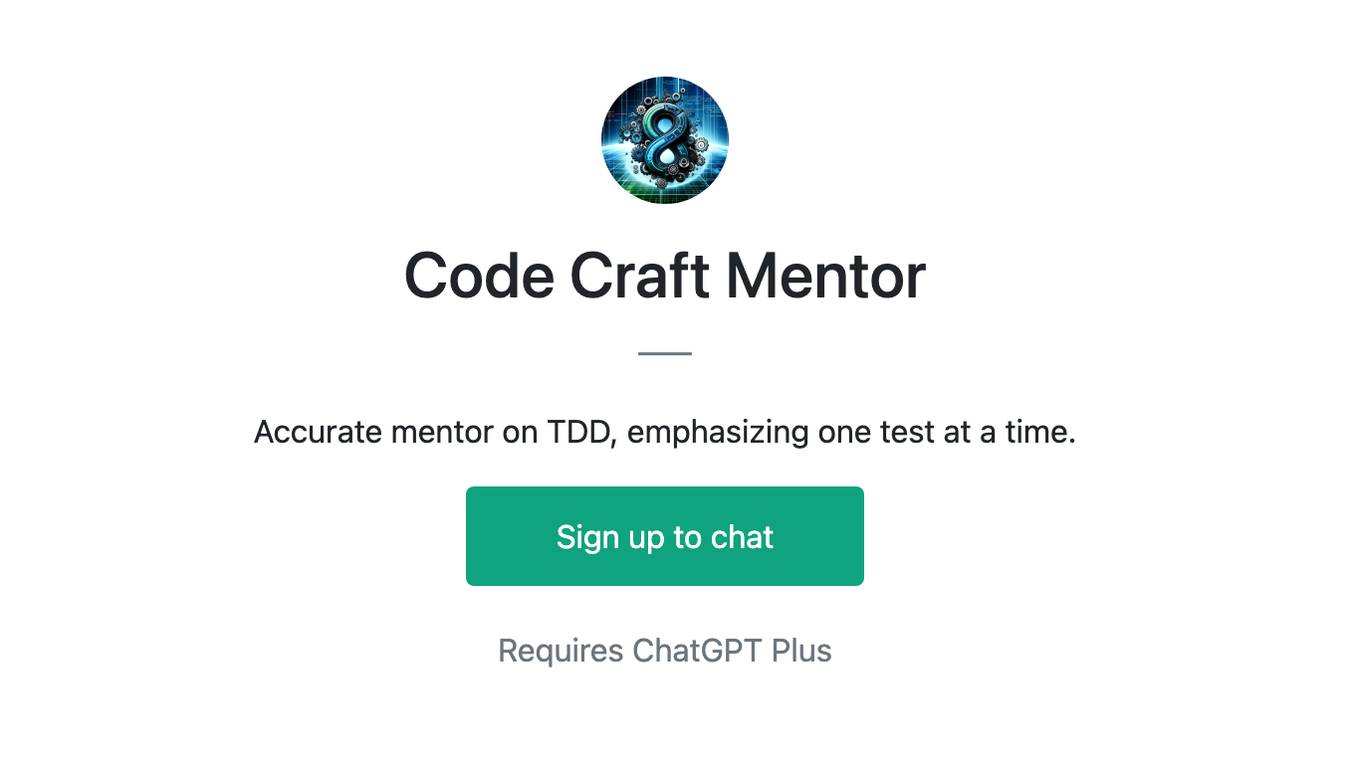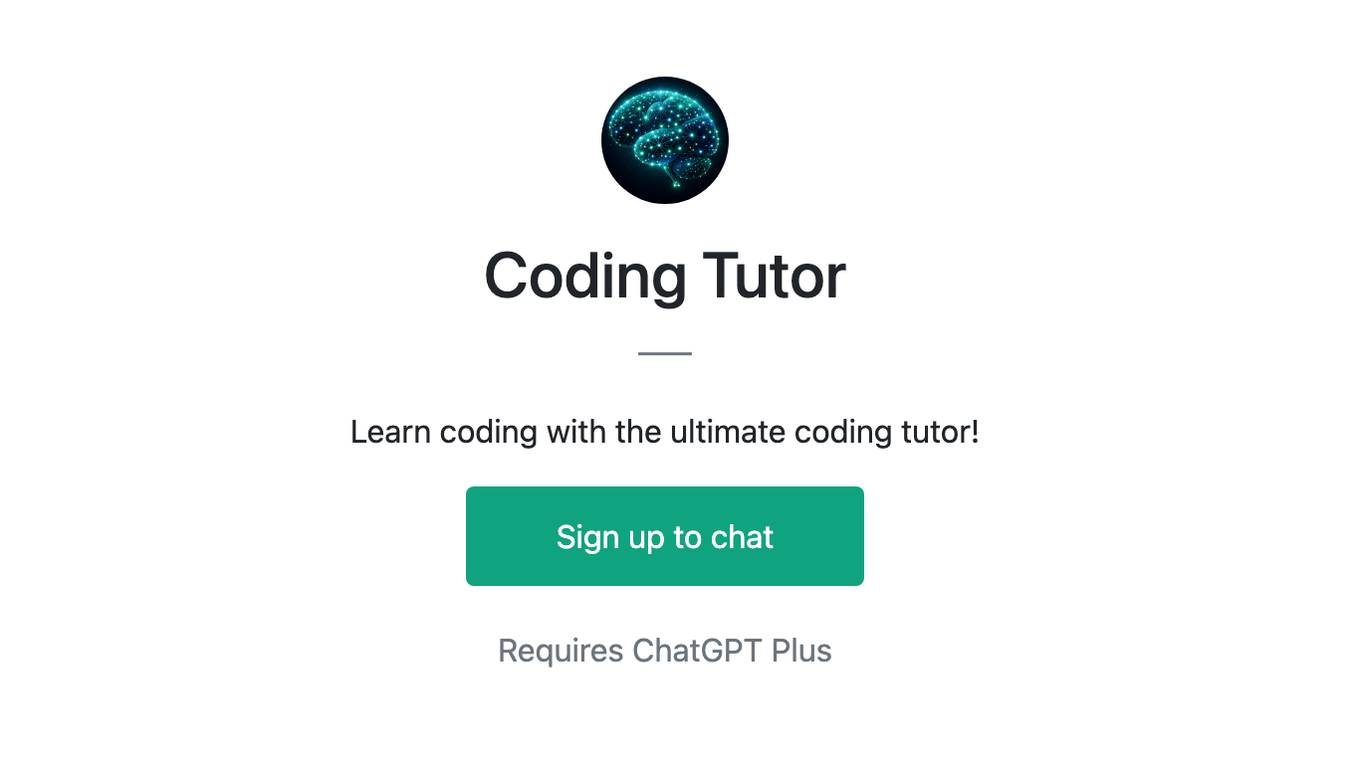Best AI tools for< Learn Code >
20 - AI tool Sites

Replit
Replit is a software creation platform that provides an integrated development environment (IDE), artificial intelligence (AI) assistance, and deployment services. It allows users to build, test, and deploy software projects directly from their browser, without the need for local setup or configuration. Replit offers real-time collaboration, code generation, debugging, and autocompletion features powered by AI. It supports multiple programming languages and frameworks, making it suitable for a wide range of development projects.
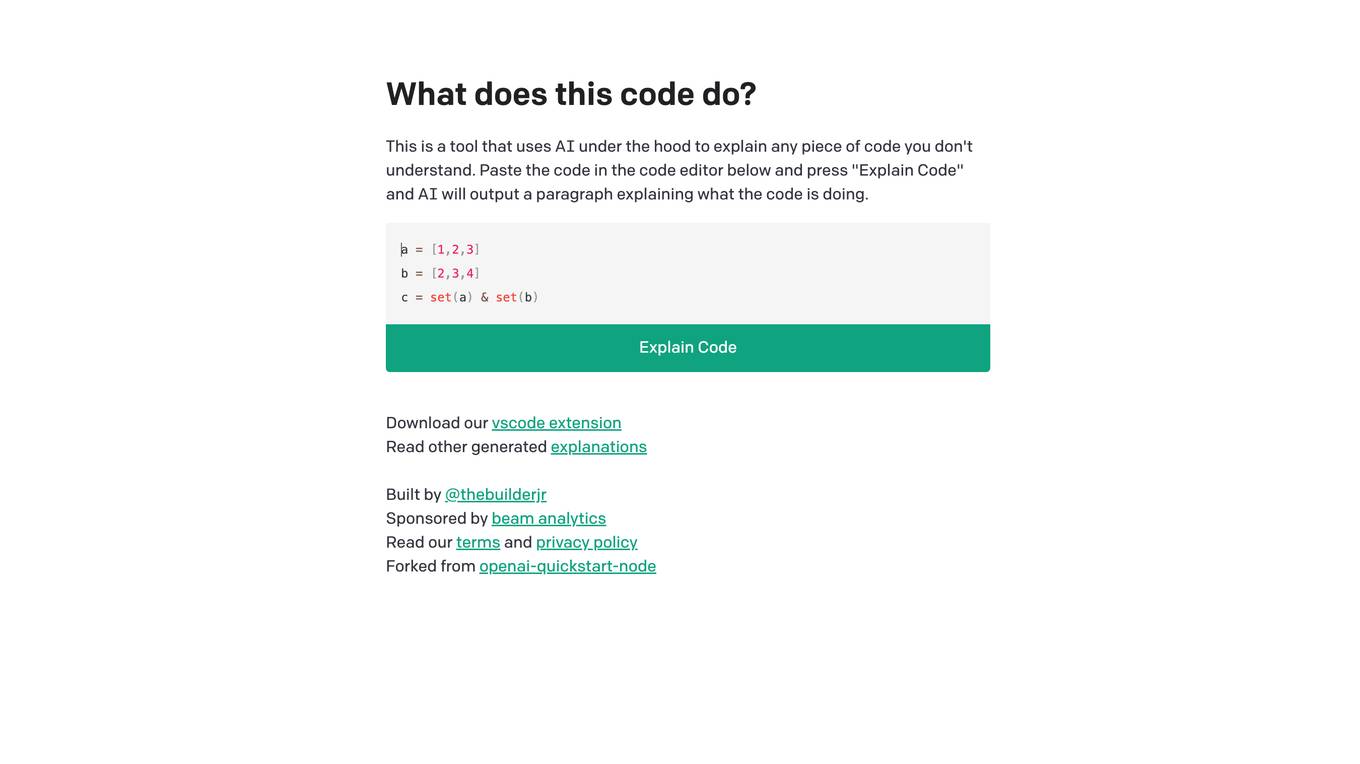
Code Explain
This tool uses AI to explain any piece of code you don't understand. Simply paste the code in the code editor and press "Explain Code" and AI will output a paragraph explaining what the code is doing.
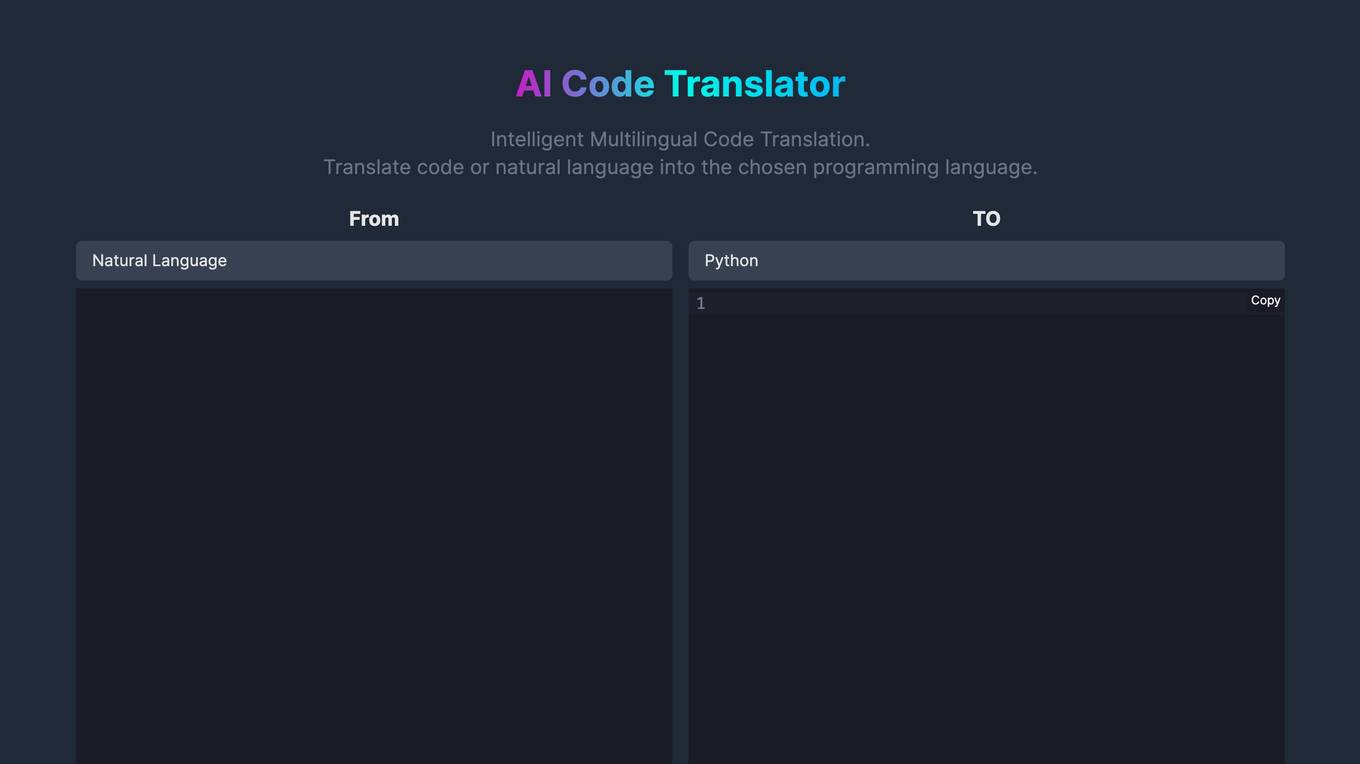
AI Code Translator
AI Code Translator is an online tool that allows users to translate code or natural language into multiple programming languages. It is powered by artificial intelligence (AI) and provides intelligent and efficient code translation. With AI Code Translator, developers can save time and effort by quickly converting code between different languages, optimizing their development process.
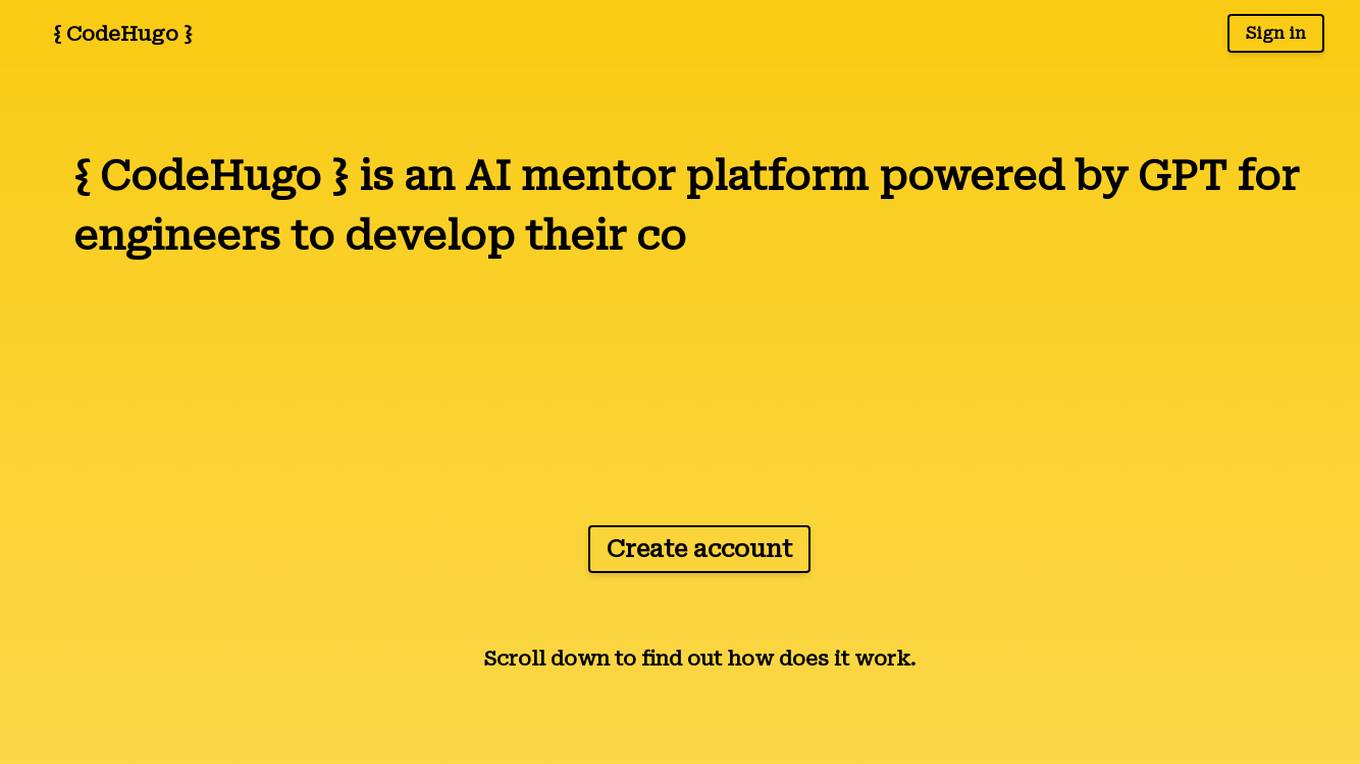
Hugo
Hugo is a personal GPT powered AI code mentor that helps you learn to code by providing real-time feedback and guidance. It is designed to be a comprehensive and interactive learning tool that can help you master the basics of coding and advance your skills.
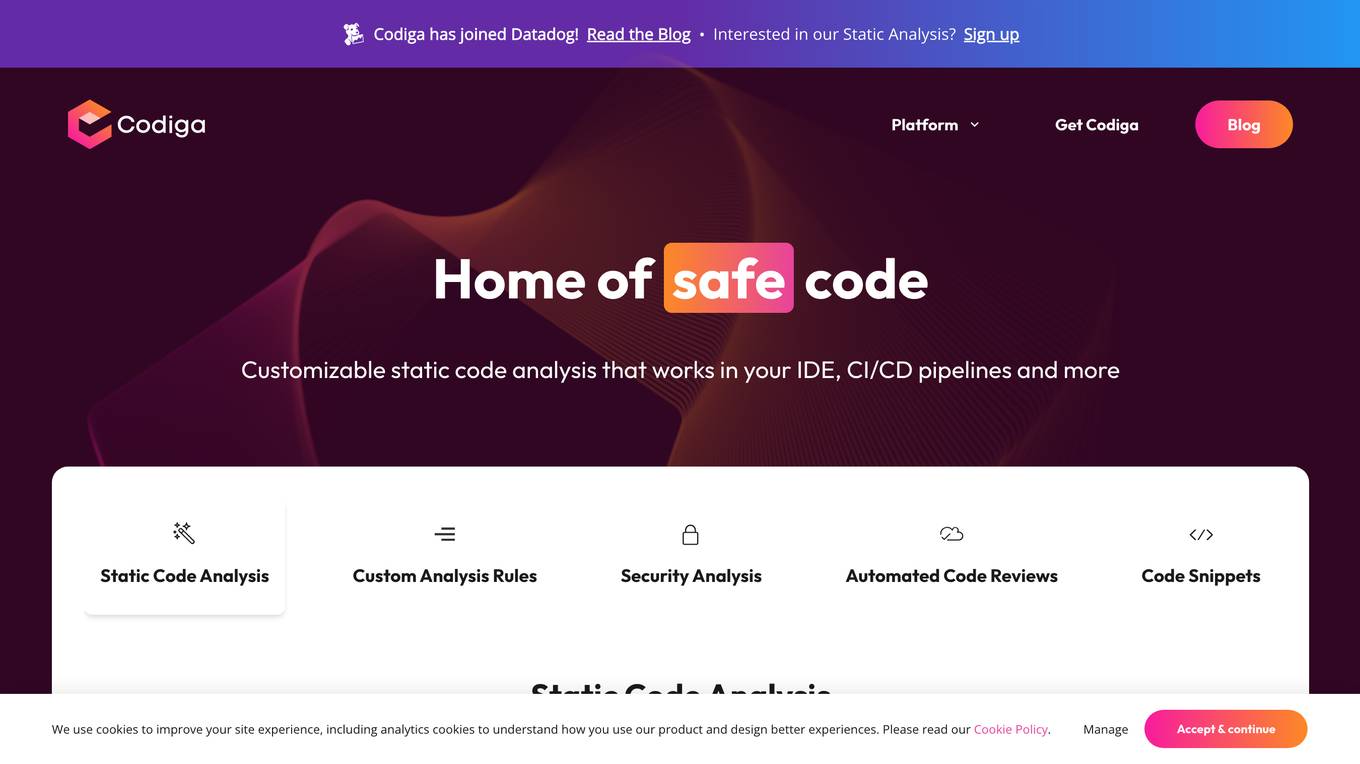
Codiga
Codiga is a static code analysis tool that helps developers write clean, safe, and secure code. It works in real-time in your IDE and CI/CD pipelines, and it can be customized to meet your specific needs. Codiga supports a wide range of languages and frameworks, and it integrates with popular tools like GitHub, GitLab, and Bitbucket.

Codeium
Codeium is a free AI-powered code completion and chat tool that helps developers write better code faster. It provides real-time suggestions and autocompletes code as you type, making it easier to write complex code without having to worry about syntax errors. Codeium also includes a chat feature that allows developers to ask questions and get help from other developers in the community.
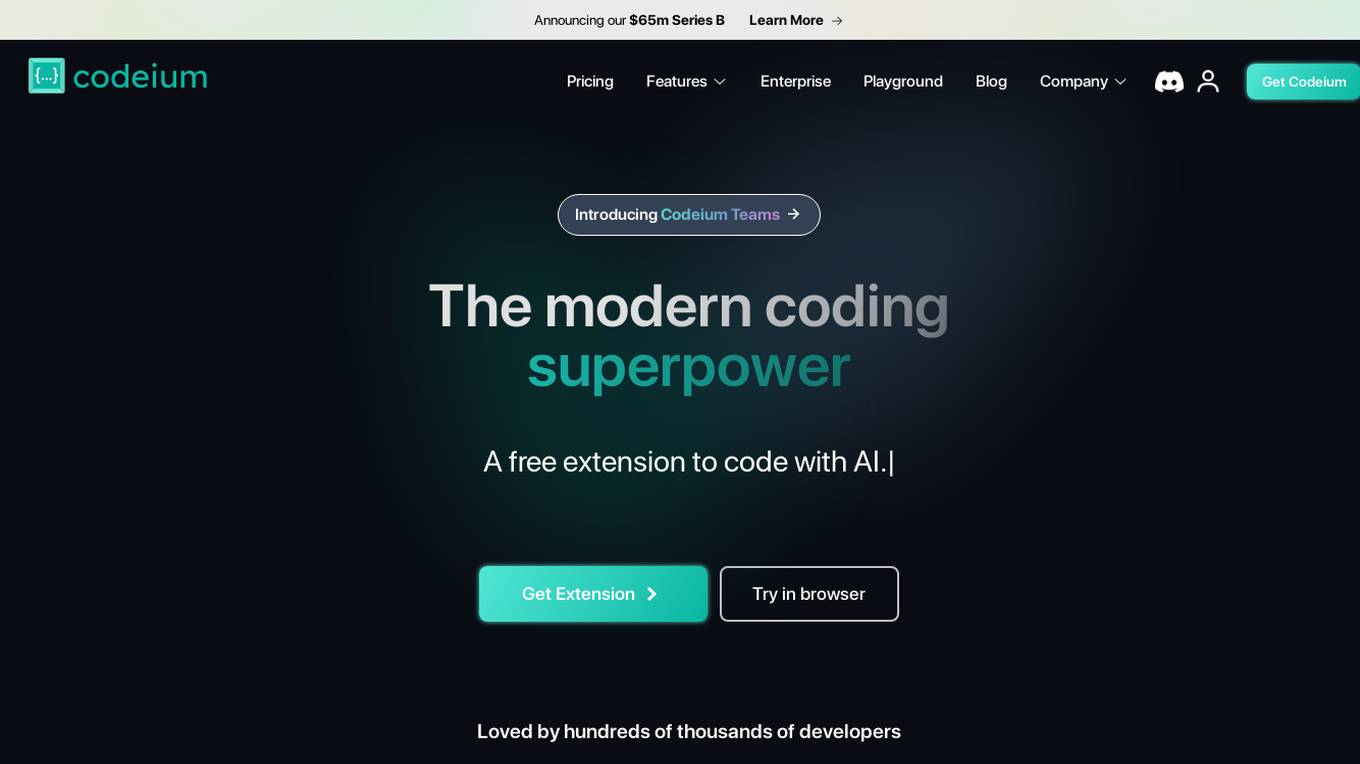
Codeium
Codeium is a free AI-powered code completion and chat tool that helps developers write better code faster. It provides real-time suggestions and documentation, and can even generate entire code snippets. Codeium is also a great way to learn new programming languages and concepts.
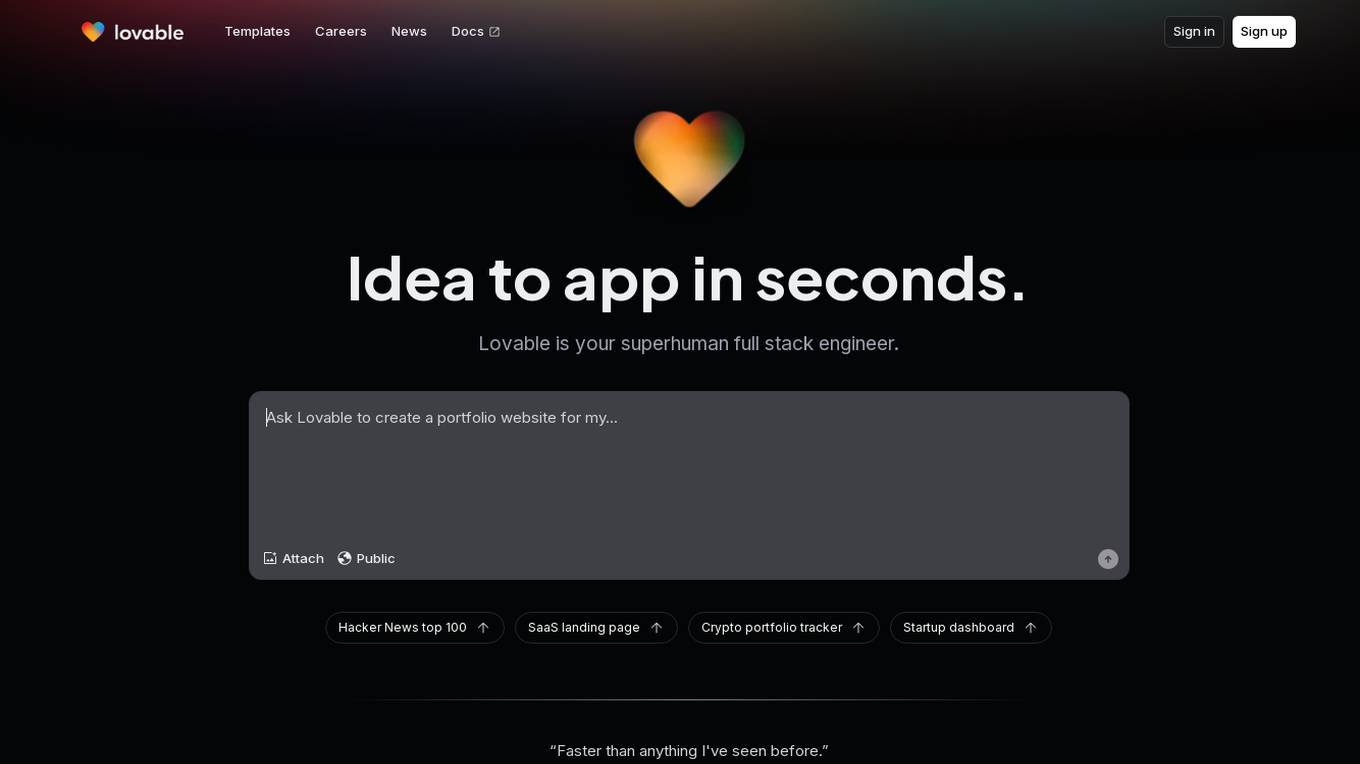
Lovable
Lovable is an AI-powered application that allows users to describe their software ideas in natural language and then automatically transforms them into fully functional applications with beautiful aesthetics. It enables users to build high-quality software without writing a single line of code, making software creation more accessible and faster than traditional coding methods. With features like live rendering, instant undo, beautiful design principles, and seamless GitHub integration, Lovable empowers product builders, developers, and designers to bring their ideas to life effortlessly.
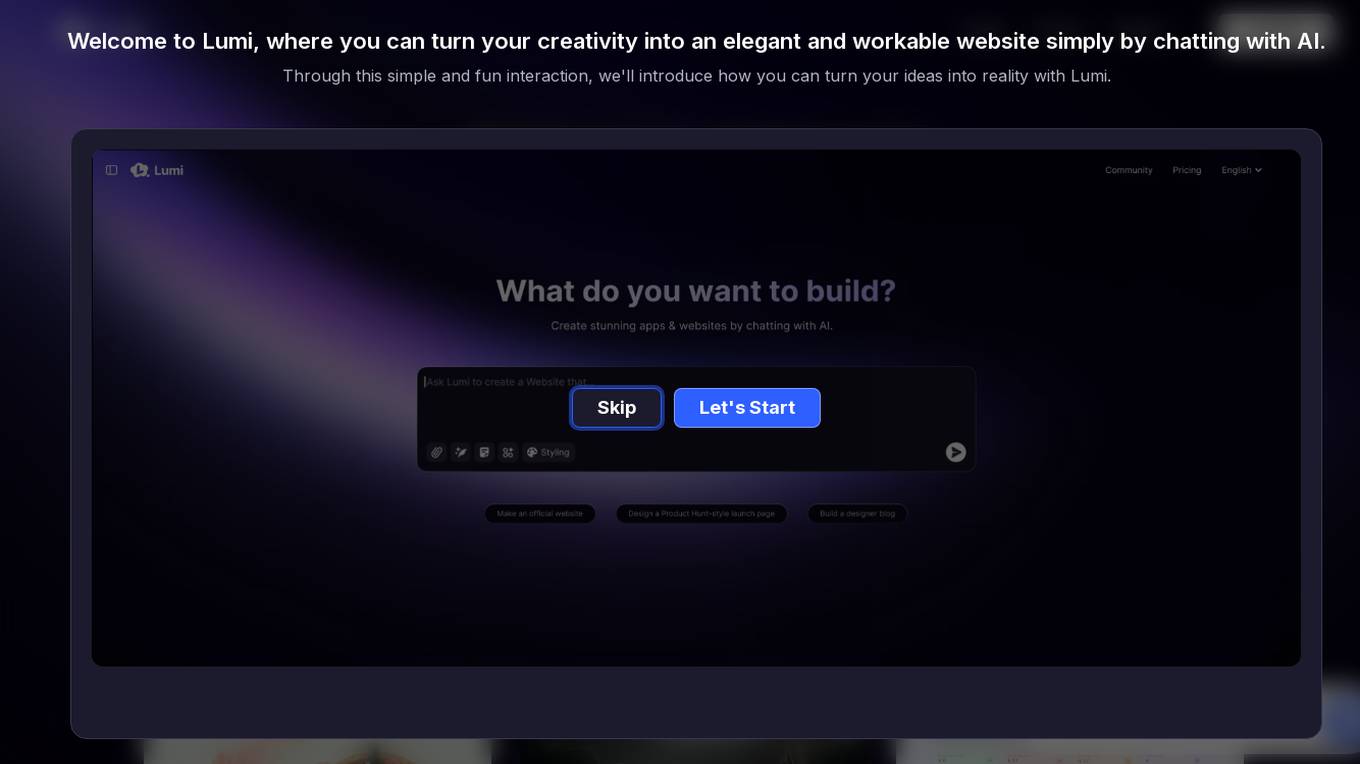
Lumi.new
Lumi.new is an AI tool that allows users to create apps and websites by simply chatting with an AI. The platform offers a user-friendly interface where users can easily design and develop various digital products without the need for extensive coding knowledge. With Lumi.new, users can build official websites, design product launch pages, create designer blogs, and engage with the community through platforms like Discord and Twitter. The tool aims to simplify the process of app and website development by leveraging AI technology to assist users in bringing their ideas to life.
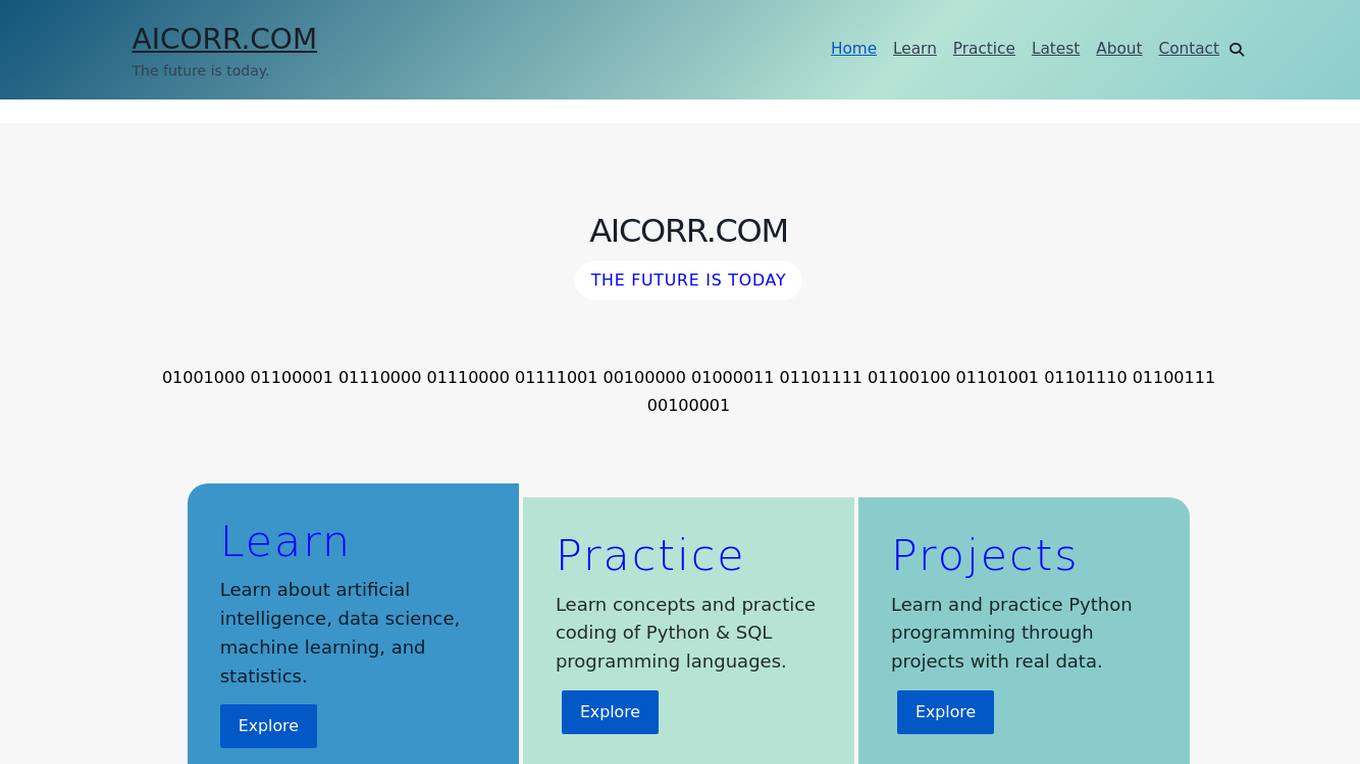
AICorr.com
AICorr.com is a website offering free coding tutorials with a focus on artificial intelligence, data science, machine learning, and statistics. Users can learn and practice coding in Python and SQL, explore projects with real data, and access a wealth of information in an easy-to-understand format. The website aims to provide up-to-date and relevant information to a global audience, ensuring a seamless learning experience for all.
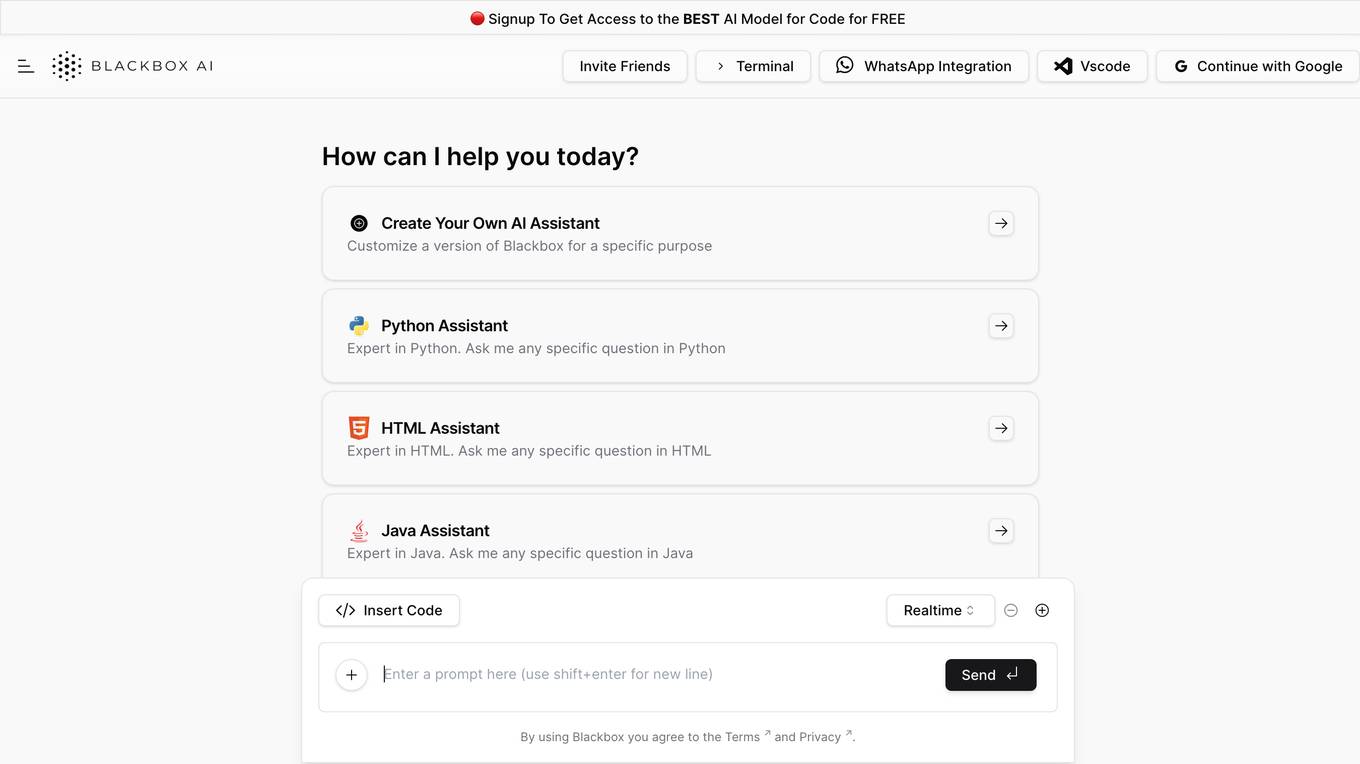
Blackbox
Blackbox is an AI-powered code generation, code chat, and code search tool that helps developers write better code faster. With Blackbox, you can generate code snippets, chat with an AI assistant about code, and search for code examples from a massive database.
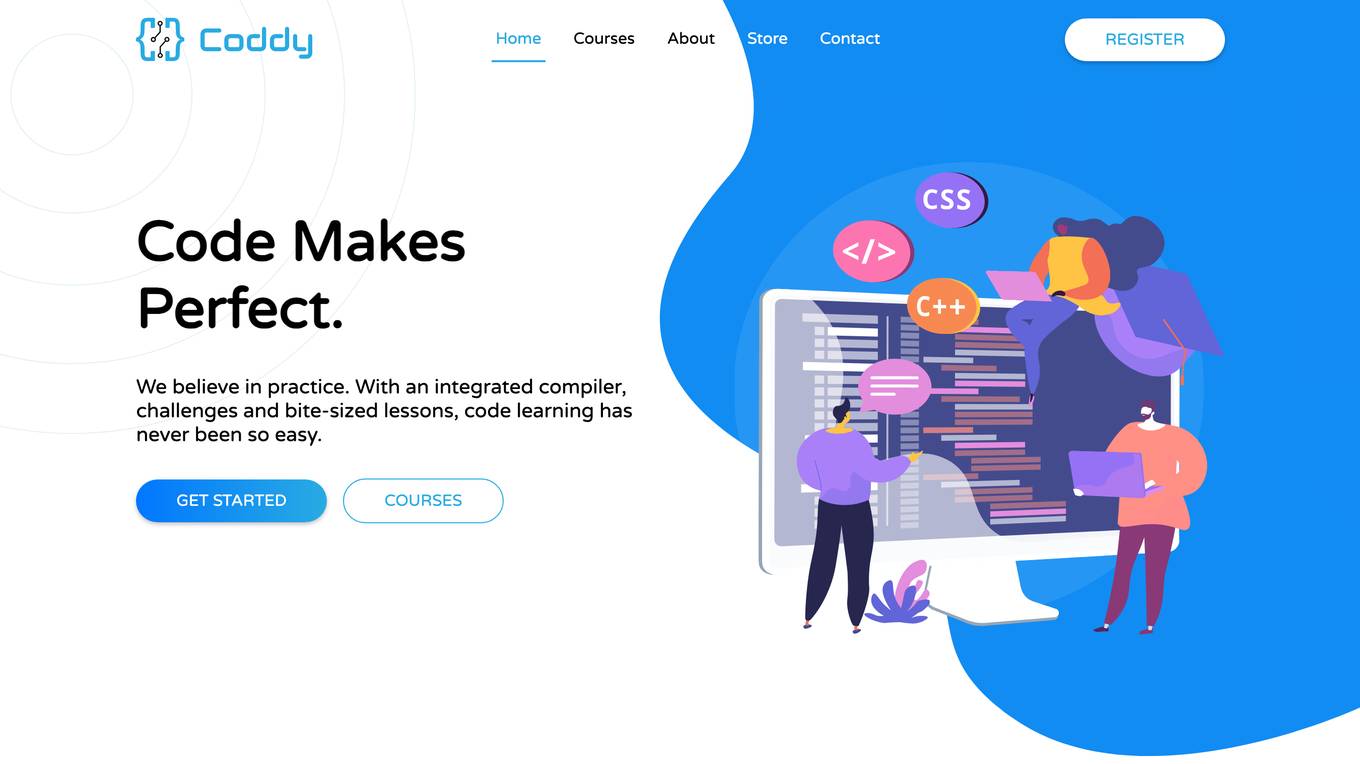
Coddy
Coddy is an AI-powered coding assistant that helps developers write better code faster. It provides real-time feedback, code completion, and error detection, making it the perfect tool for both beginners and experienced developers. Coddy also integrates with popular development tools like Visual Studio Code and GitHub, making it easy to use in your existing workflow.
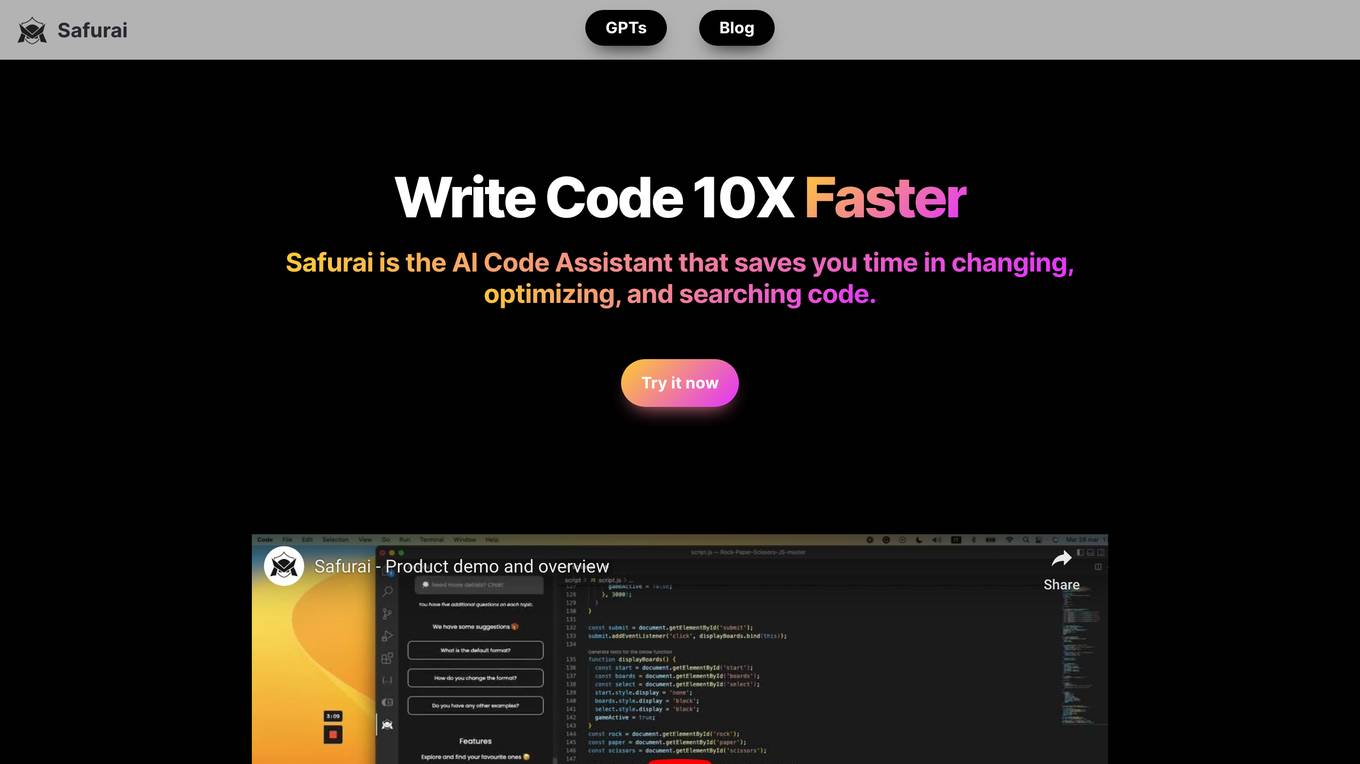
Safurai
Safurai is an AI-powered coding assistant that helps developers write code faster, safer, and better. It offers a range of features, including a textbox for asking questions and getting code suggestions, shortcuts for code optimization and unit testing, the ability to train the assistant on specific projects, and a natural language search for finding code. Safurai is compatible with various IDEs, including Visual Studio Code, IntelliJ, and PyCharm.
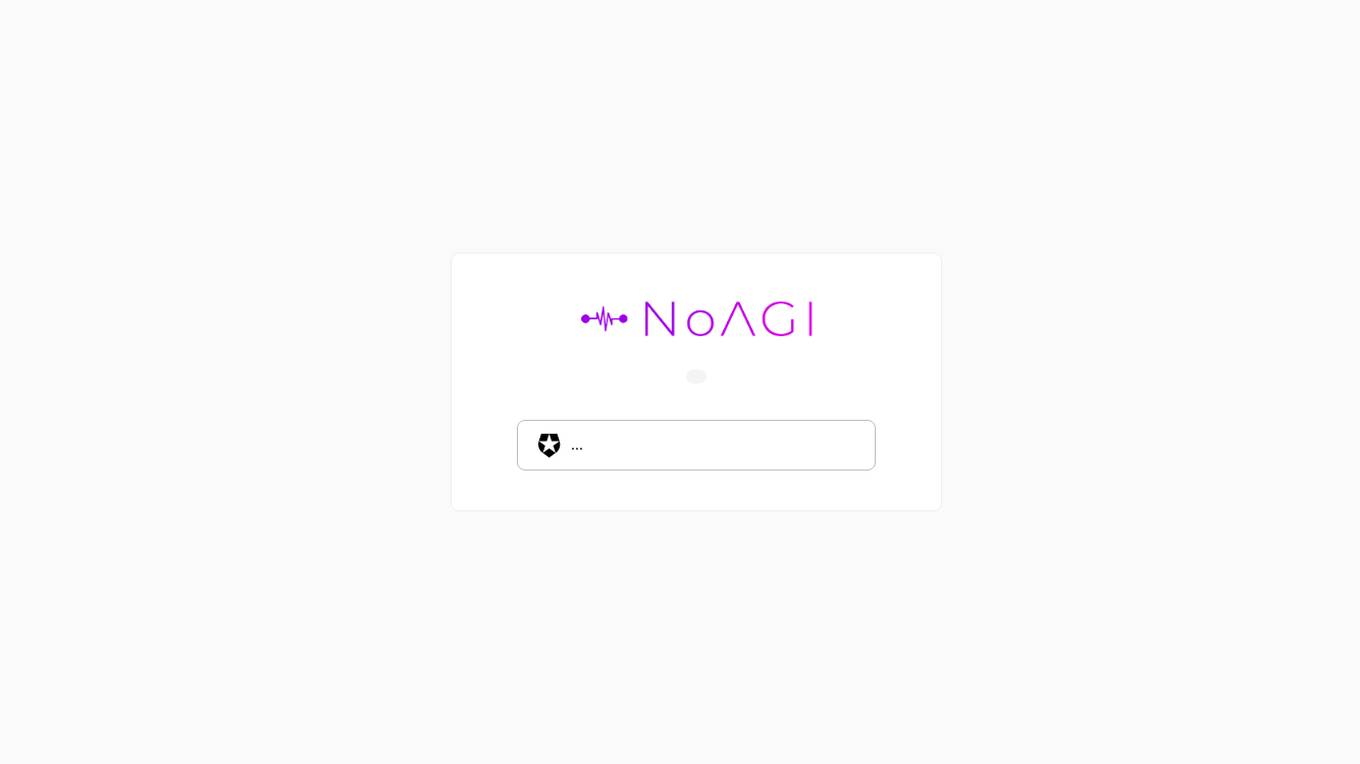
NoAGI
NoAGI is an AI tool that helps you write better code. It uses natural language processing to understand your code and suggest improvements. NoAGI can help you with a variety of coding tasks, including code generation, code completion, and code refactoring.
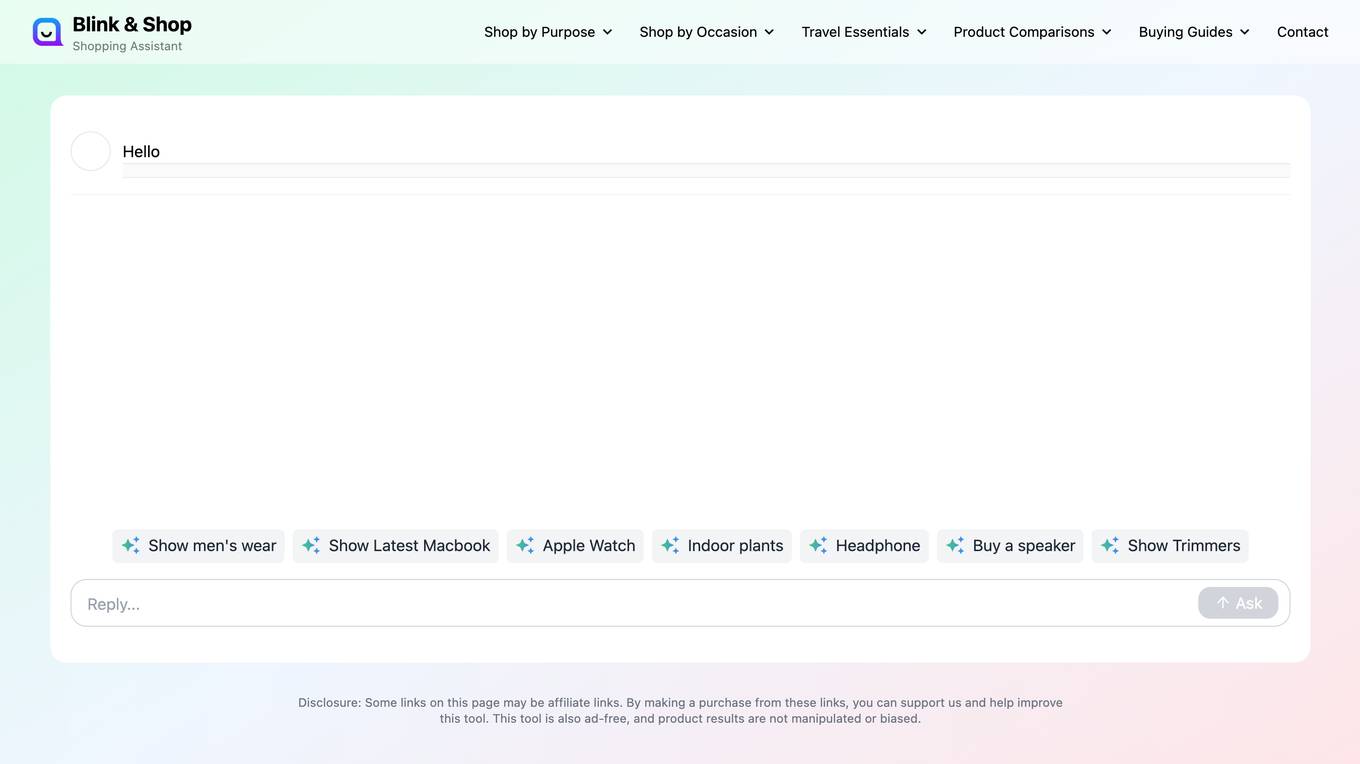
Syair SGP
The website is a platform dedicated to providing predictions for Togel Singapore (SGP) through traditional poetry codes. Syair SGP is a popular prediction method among Togel Singapore players, utilizing hidden clues in traditional poetry codes to forecast main numbers. The platform combines traditional Live Singapore practices with modern analysis to assist users in making smarter betting decisions. Users can access forums, learn about the poetry codes, and stay updated to enhance their Singaporepools gameplay experience.
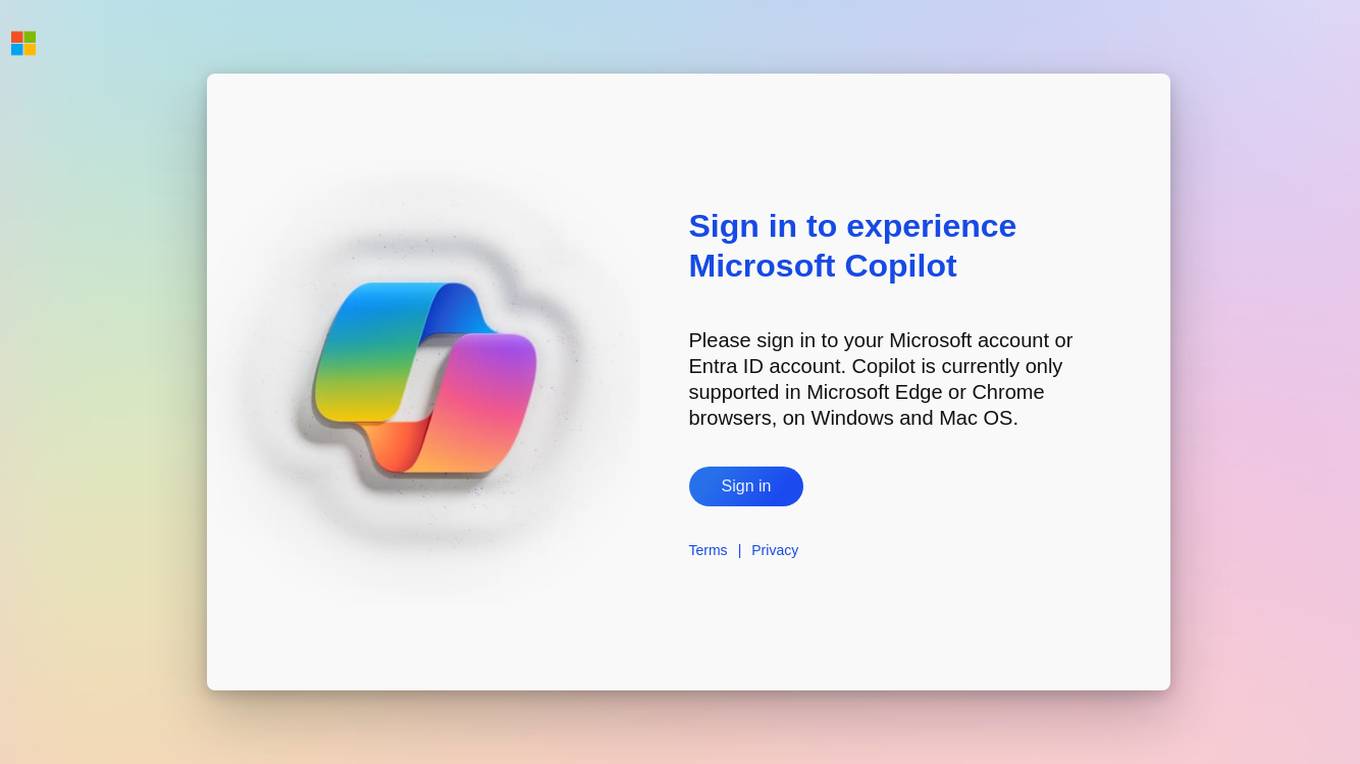
Microsoft Copilot
Microsoft Copilot is an AI-powered coding assistant that helps developers write better code, faster. It provides real-time suggestions and code completions, and can even generate entire functions and classes. Copilot is available as a Visual Studio Code extension and as a standalone application.
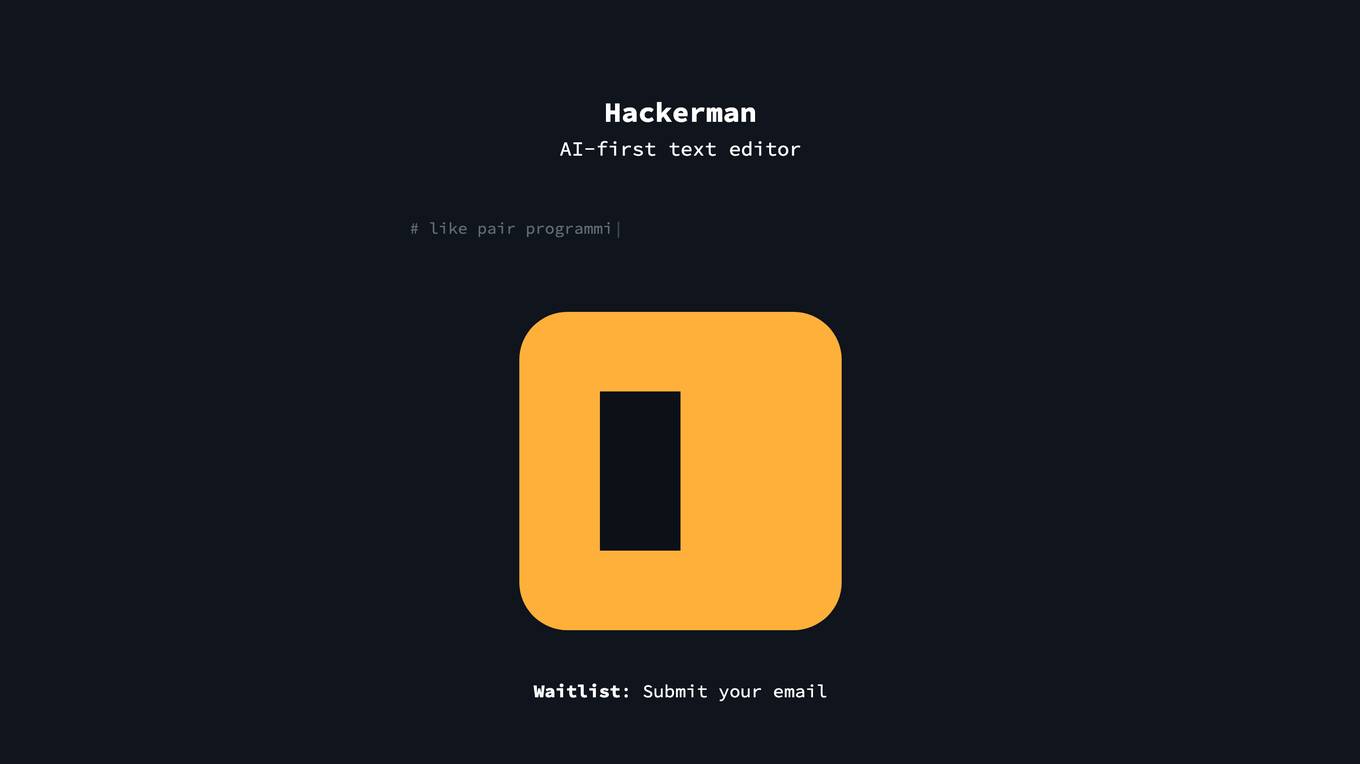
Hackerman
Hackerman is an AI-first text editor that helps developers write code faster and more efficiently. It uses artificial intelligence to provide real-time feedback on your code, suggest code completions, and identify potential errors. Hackerman is designed to make coding more accessible and enjoyable for developers of all levels.

GPTConsole
GPTConsole is an AI-powered platform that helps developers build production-ready applications faster and more efficiently. Its AI agents can generate code for a variety of applications, including web applications, AI applications, and landing pages. GPTConsole also offers a range of features to help developers build and maintain their applications, including an AI agent that can learn your entire codebase and answer your questions, and a CLI tool for accessing agents directly from the command line.
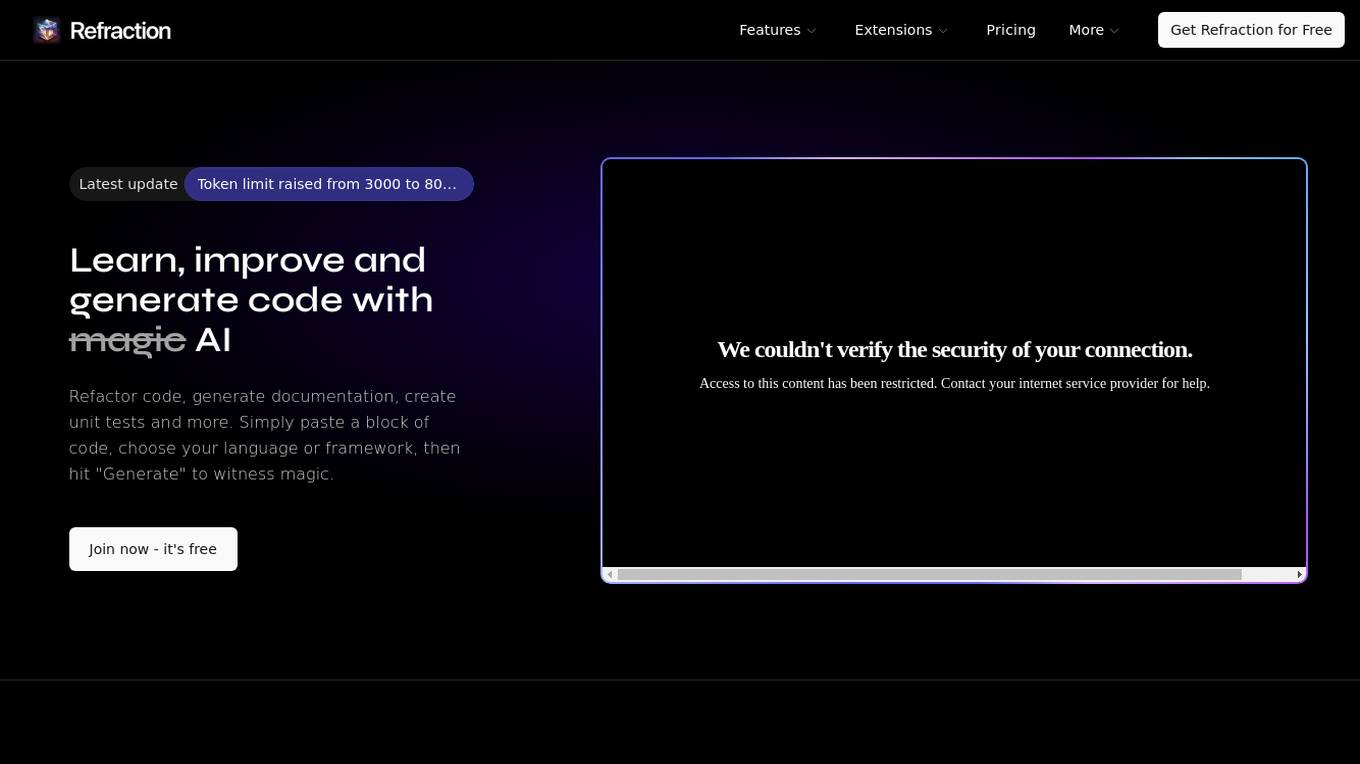
Refraction
Refraction is an AI-powered code generation tool designed to help developers learn, improve, and generate code effortlessly. It offers a wide range of features such as bug detection, code conversion, function creation, CSP generation, CSS style conversion, debug statement addition, diagram generation, documentation creation, code explanation, code improvement, concept learning, CI/CD pipeline creation, SQL query generation, code refactoring, regex generation, style checking, type addition, and unit test generation. With support for 56 programming languages, Refraction is a versatile tool trusted by innovative companies worldwide to streamline software development processes using the magic of AI.
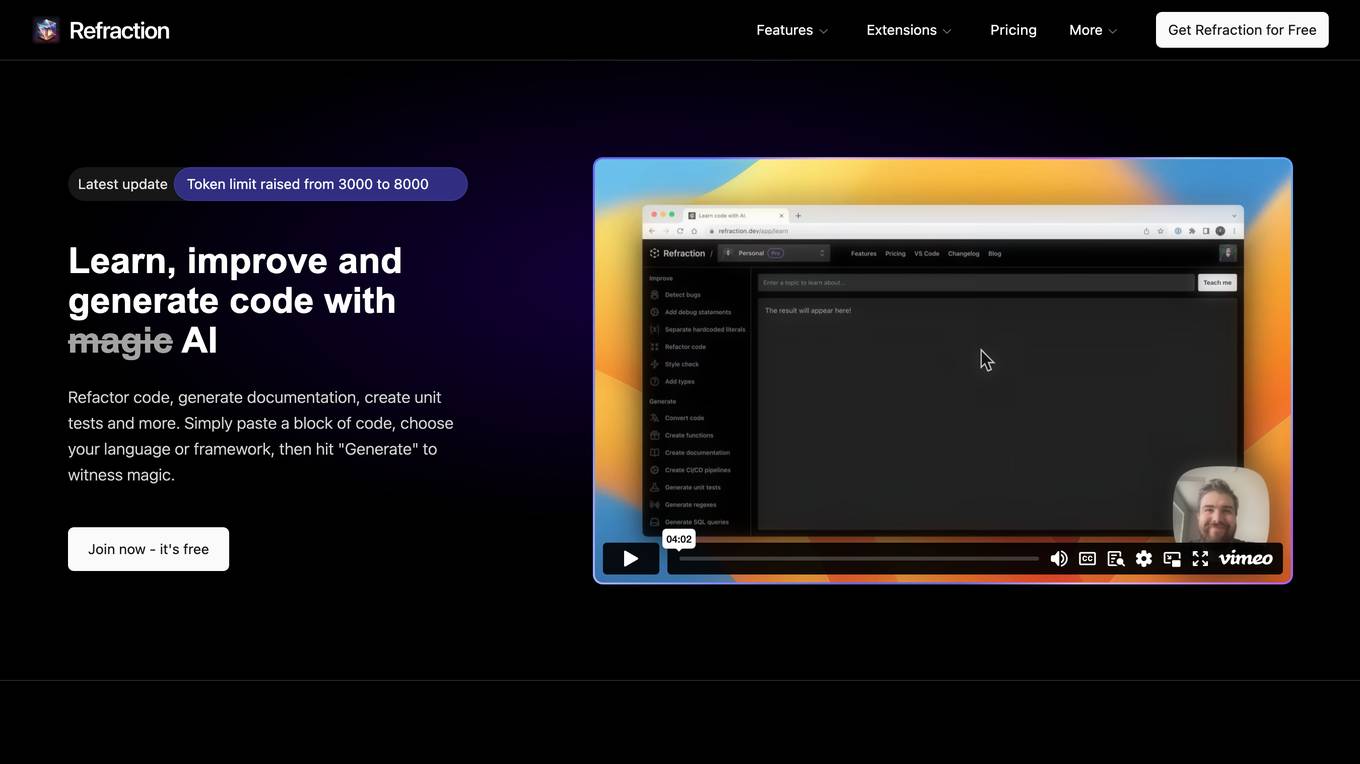
Refraction
Refraction is a code generation tool that uses AI to help developers write better code. It can be used to generate unit tests, documentation, refactor code, and more. Refraction is designed for developers of all levels and can be used with a variety of programming languages and frameworks.
0 - Open Source AI Tools
20 - OpenAI Gpts
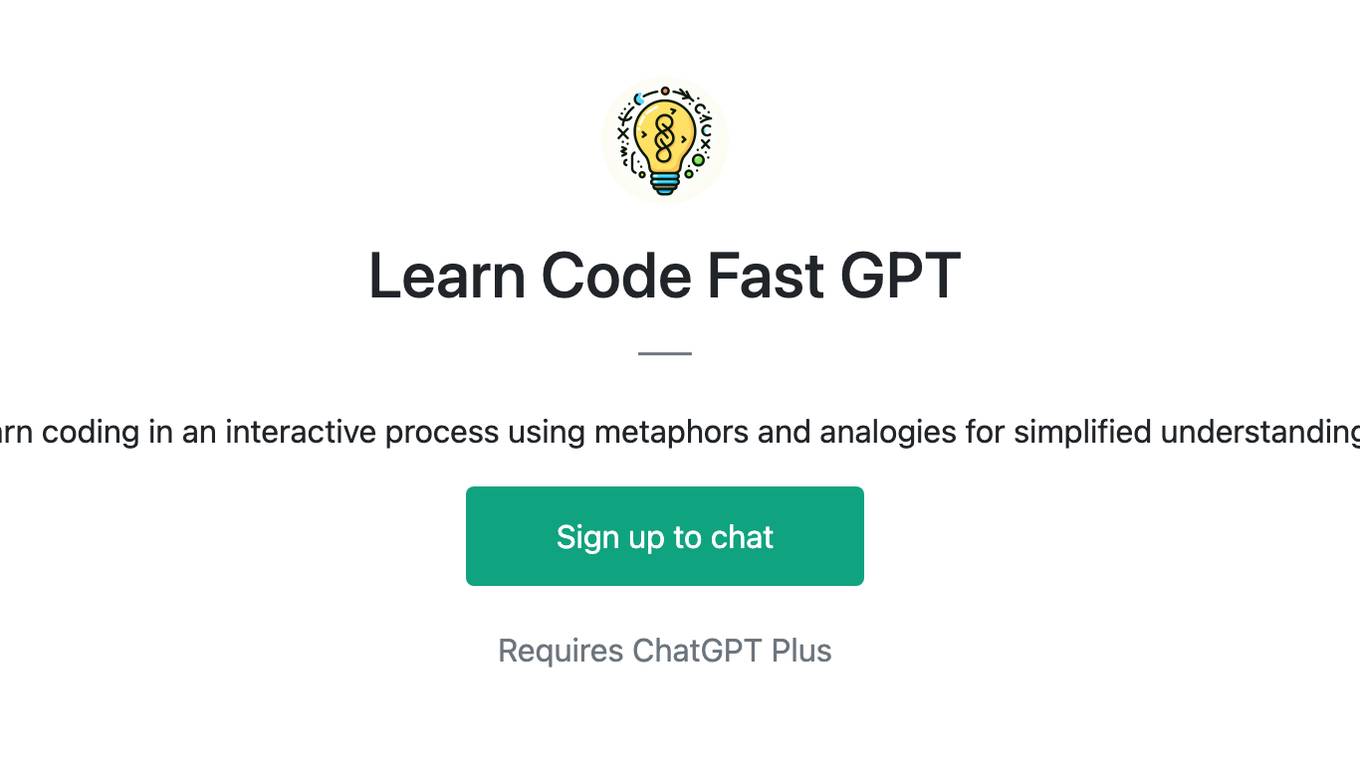
Learn Code Fast GPT
Learn coding in an interactive process using metaphors and analogies for simplified understanding.
Golang Code Review and Example Buddy
Provides in-depth Golang code reviews, explanations, and fixes.

The Greatest Computer Science Tutor
Get help with handpicked college textbooks. Ask for commands. Learn theory + code simultaneously.
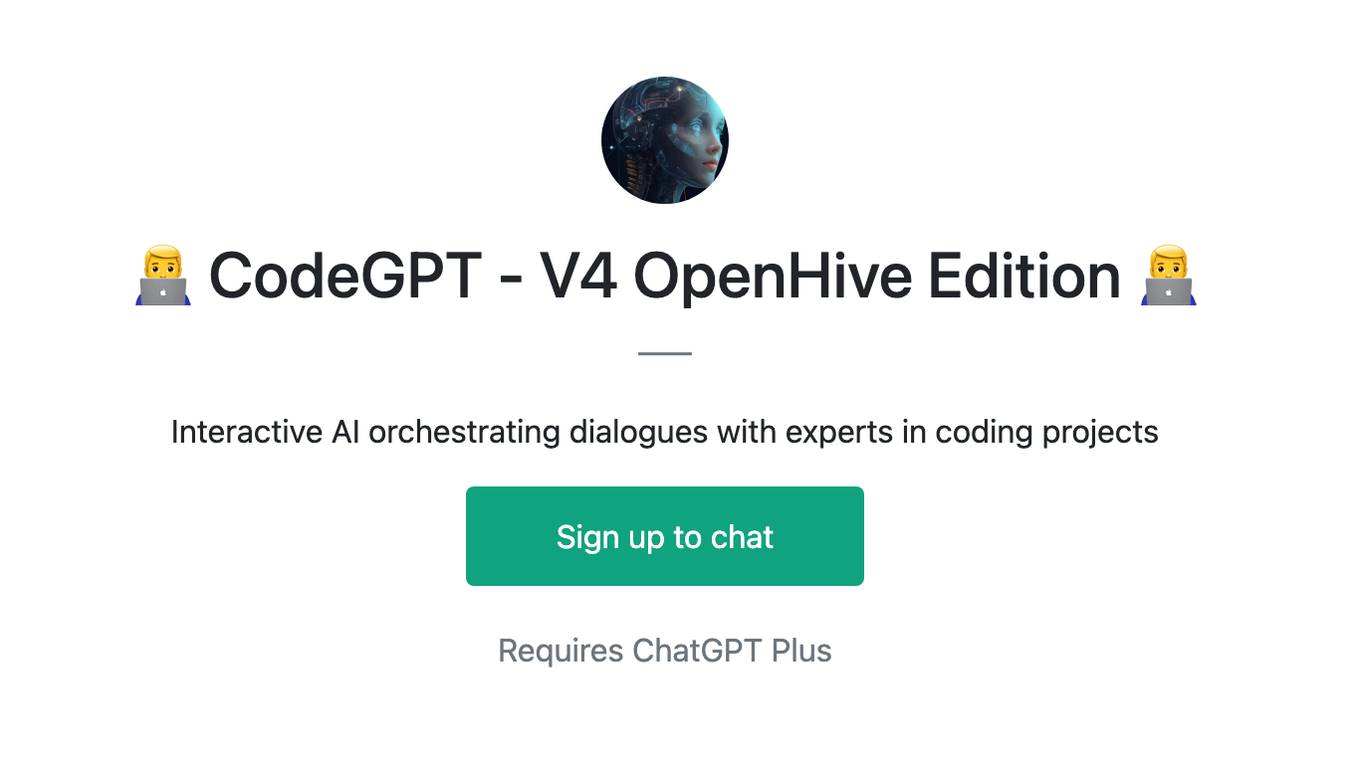
👨💻 CodeGPT - V4 OpenHive Edition 👨💻
Interactive AI orchestrating dialogues with experts in coding projects

Code Buddy
Your own personal senior software engineer mentor critiquing and optimizing your code helping your improve.
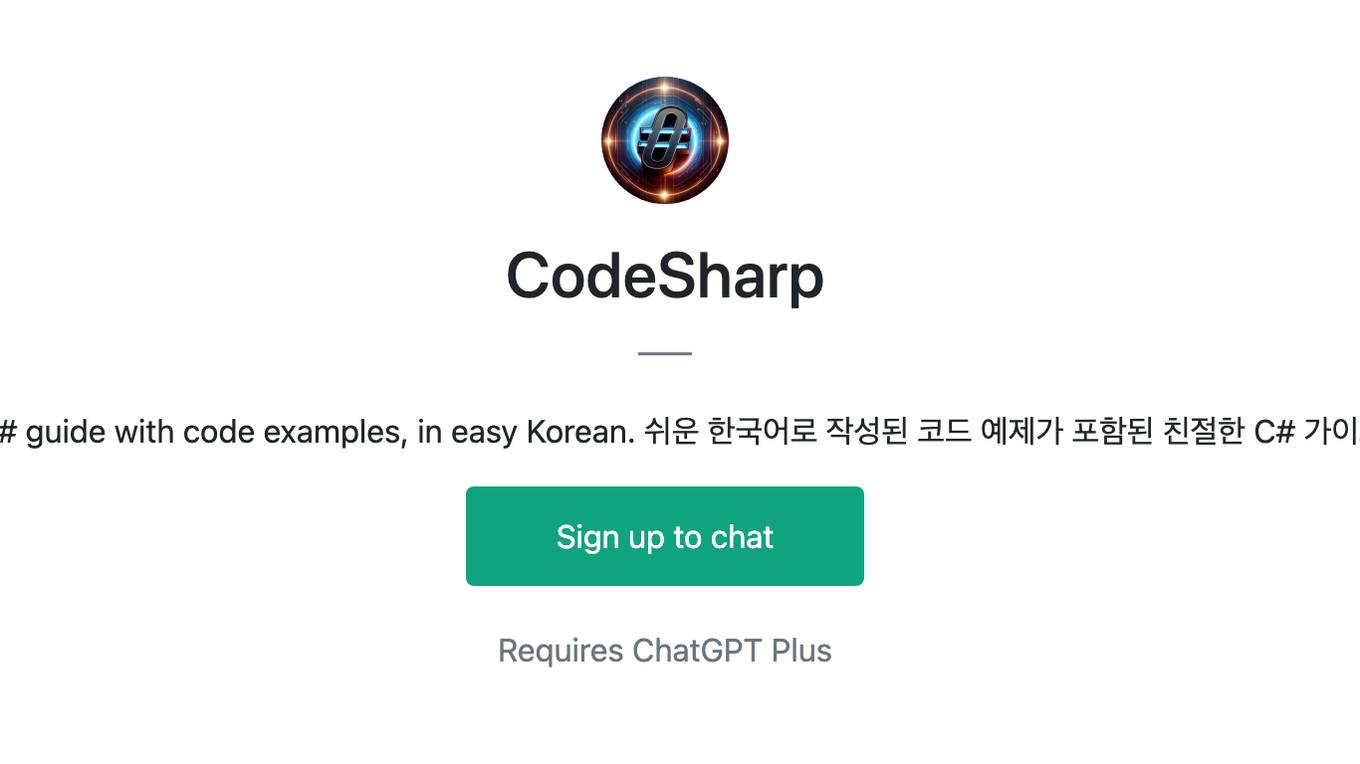
CodeSharp
Friendly C# guide with code examples, in easy Korean. 쉬운 한국어로 작성된 코드 예제가 포함된 친절한 C# 가이드입니다.
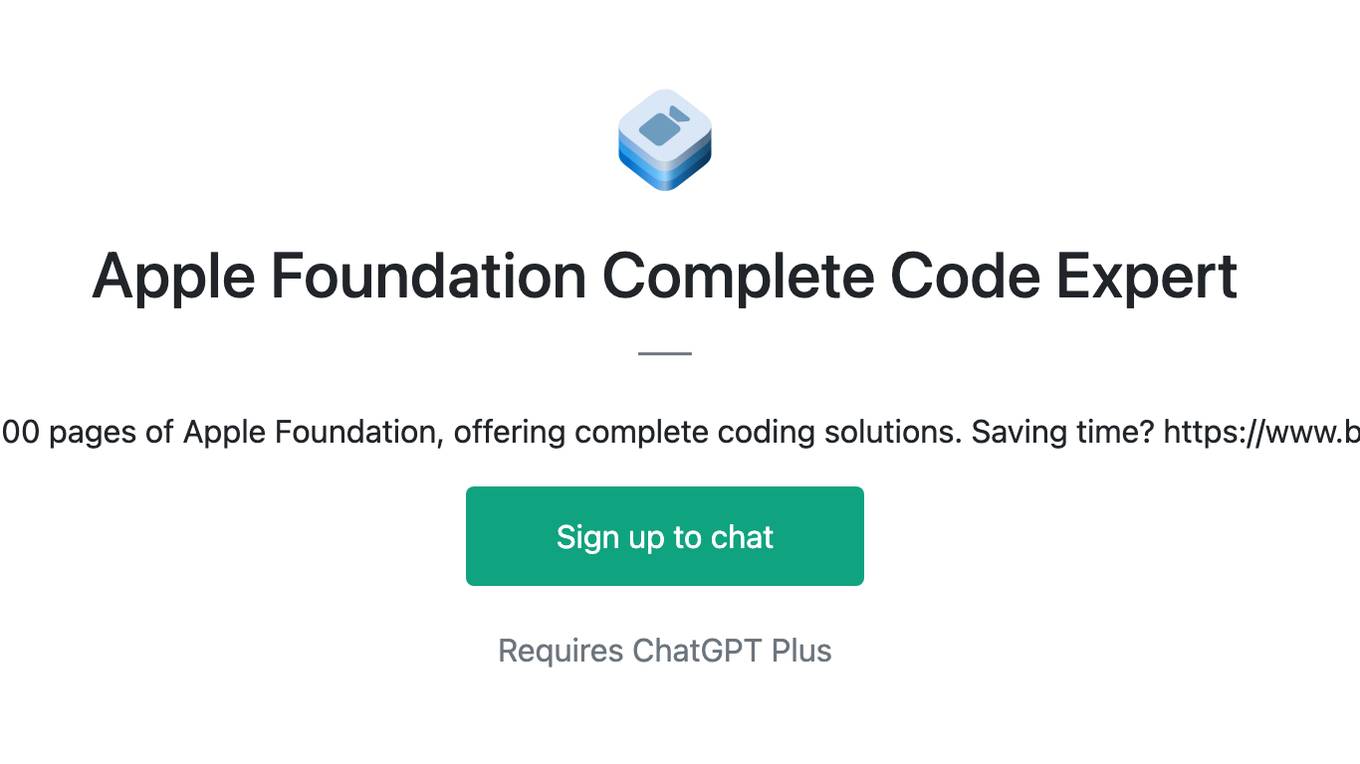
Apple Foundation Complete Code Expert
A detailed expert trained on all 72,000 pages of Apple Foundation, offering complete coding solutions. Saving time? https://www.buymeacoffee.com/parkerrex ☕️❤️
